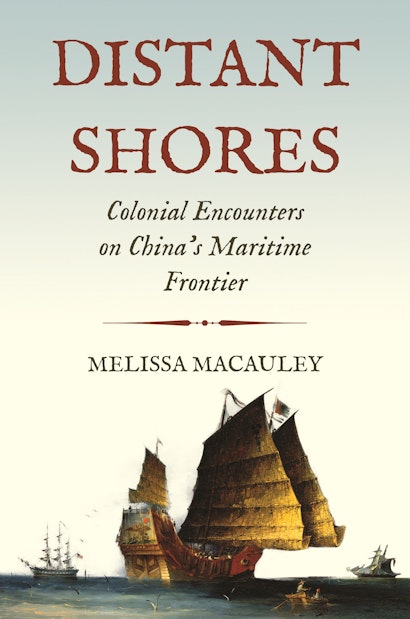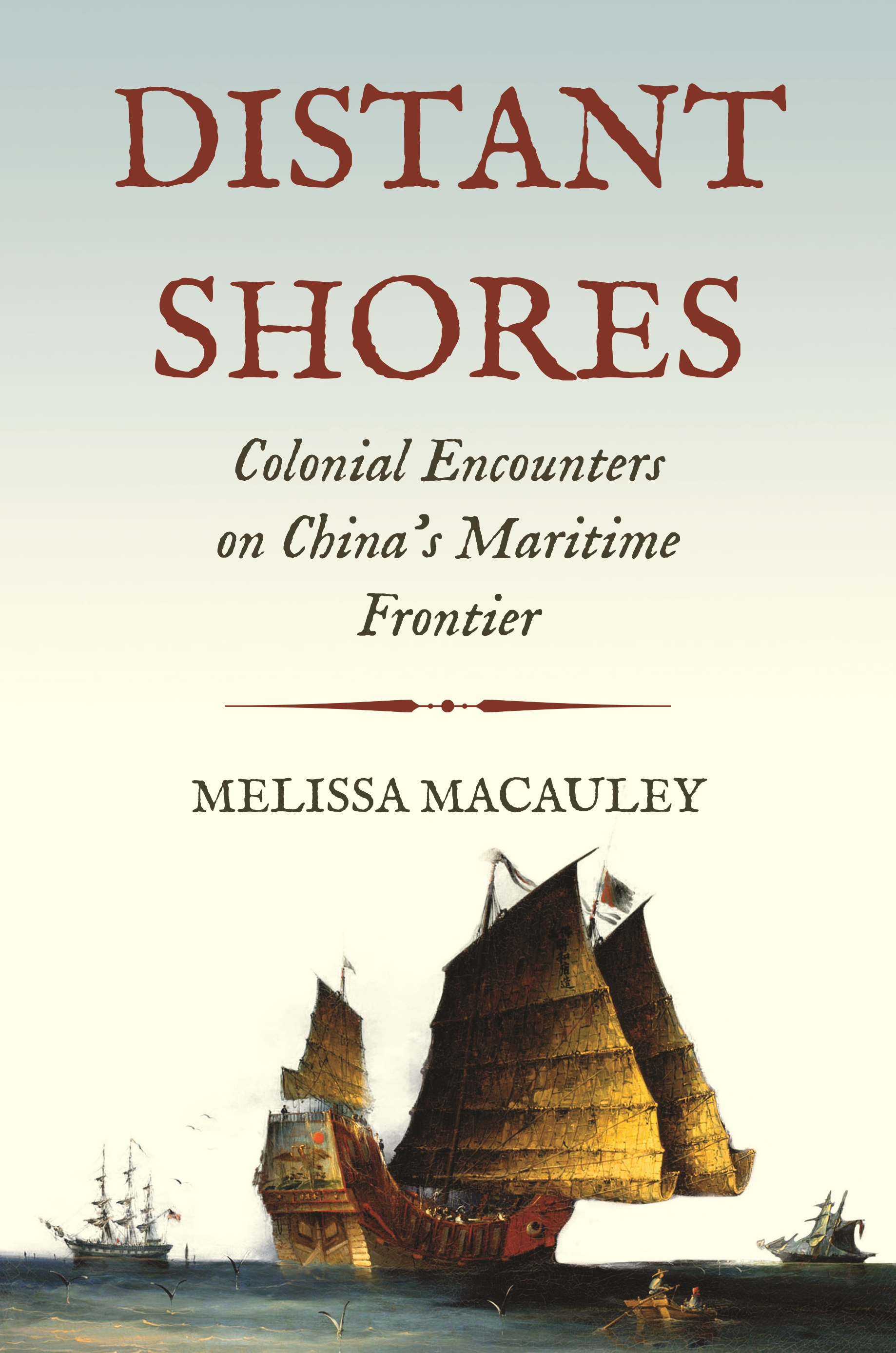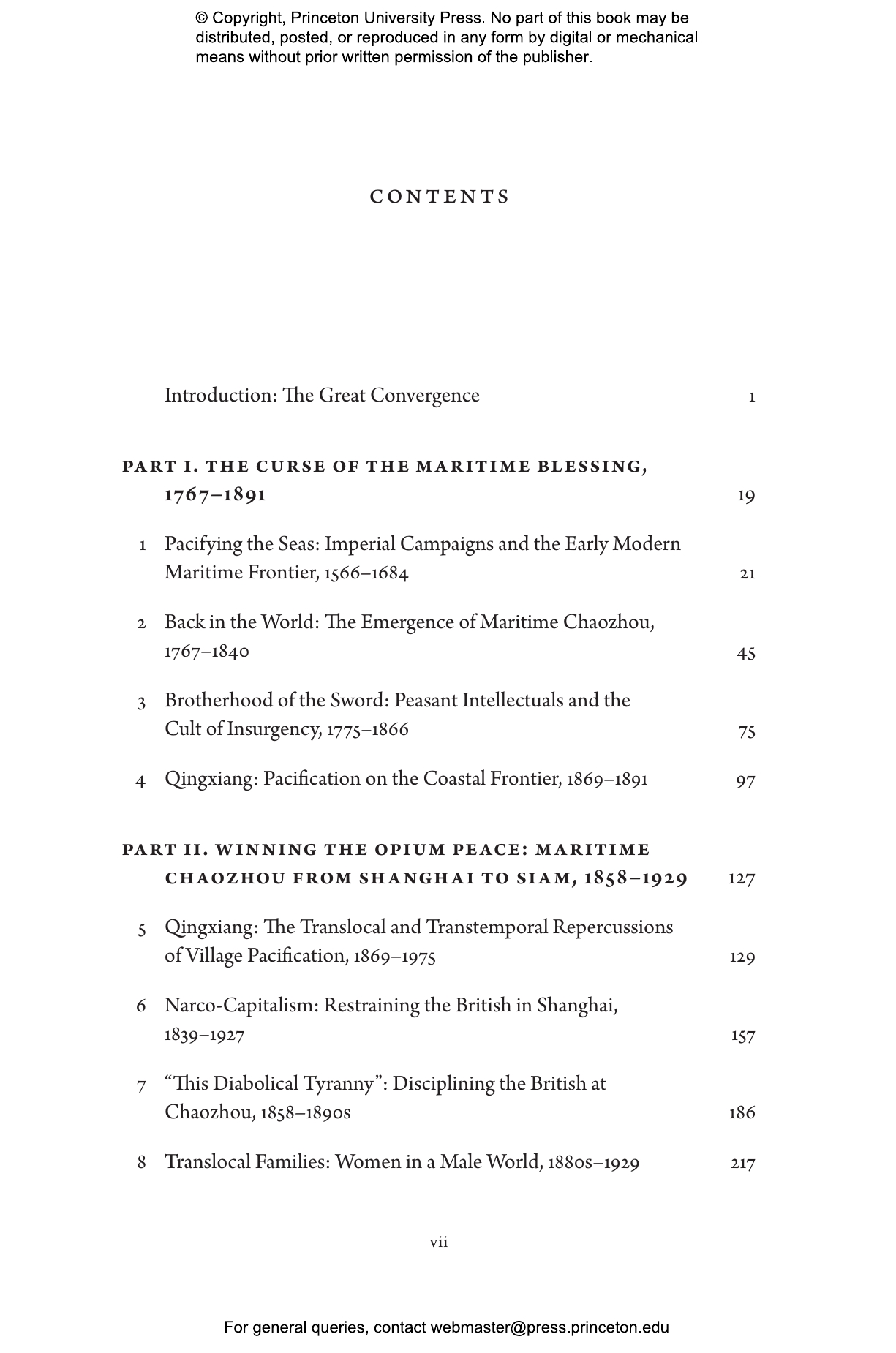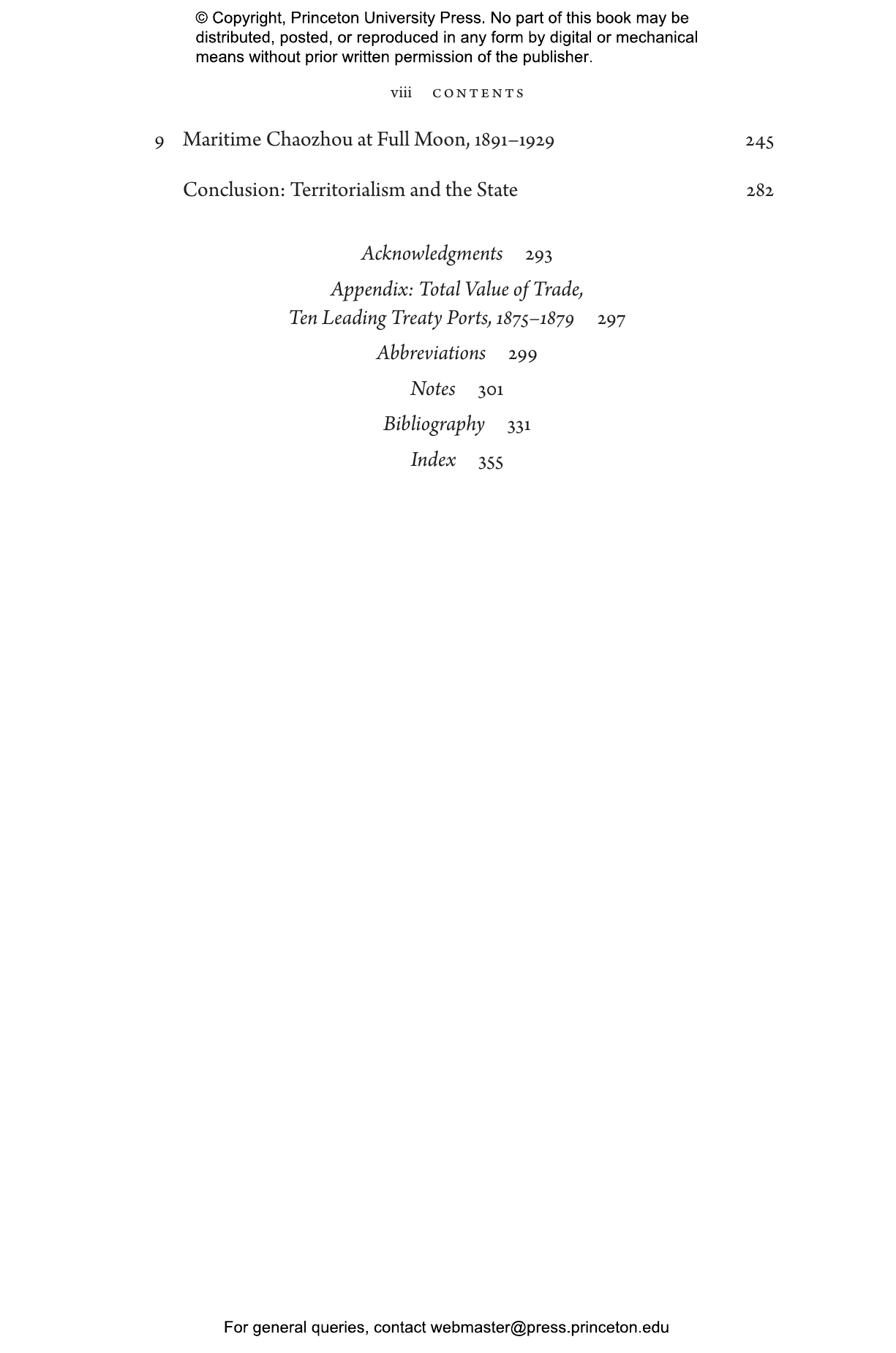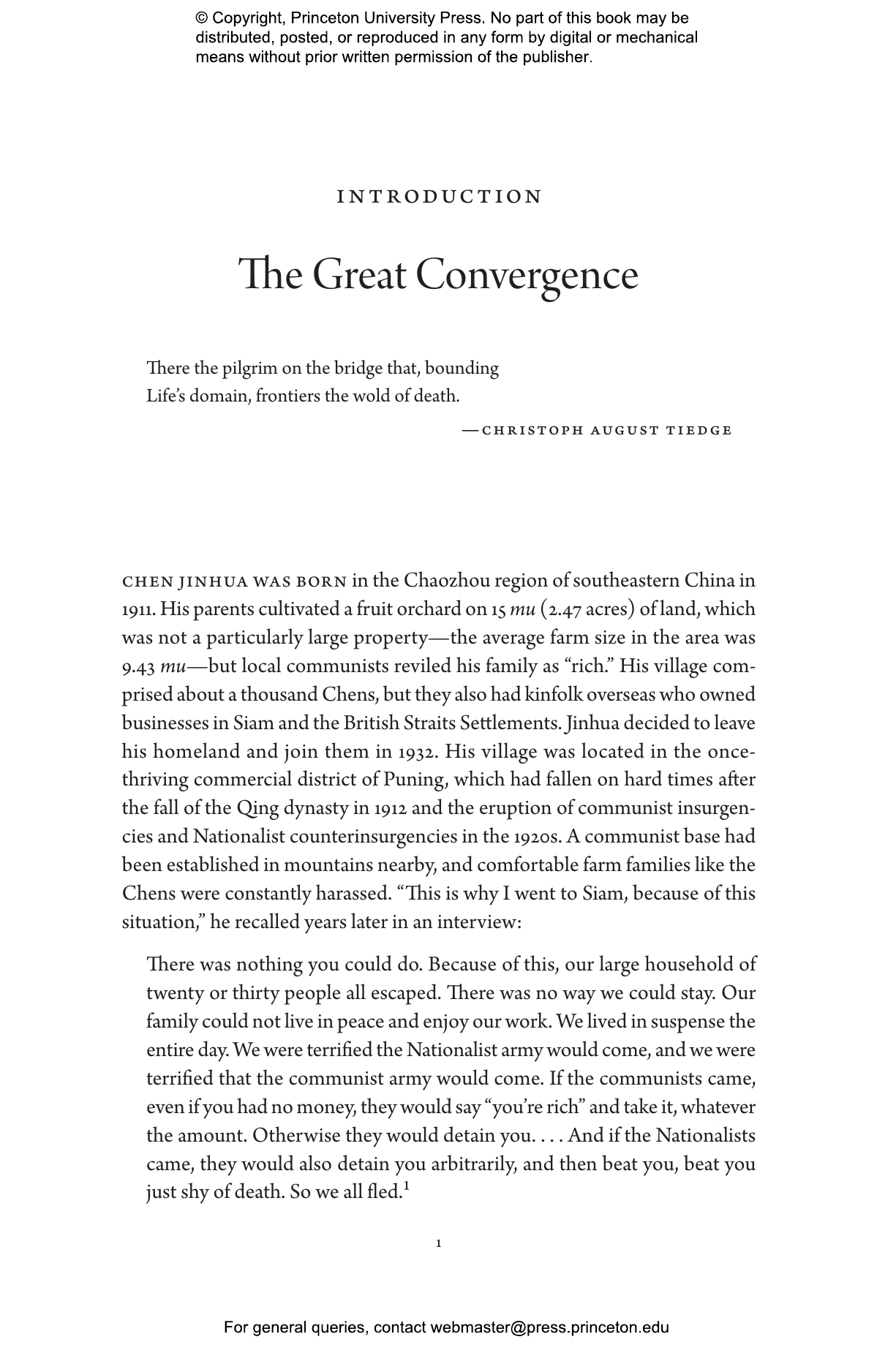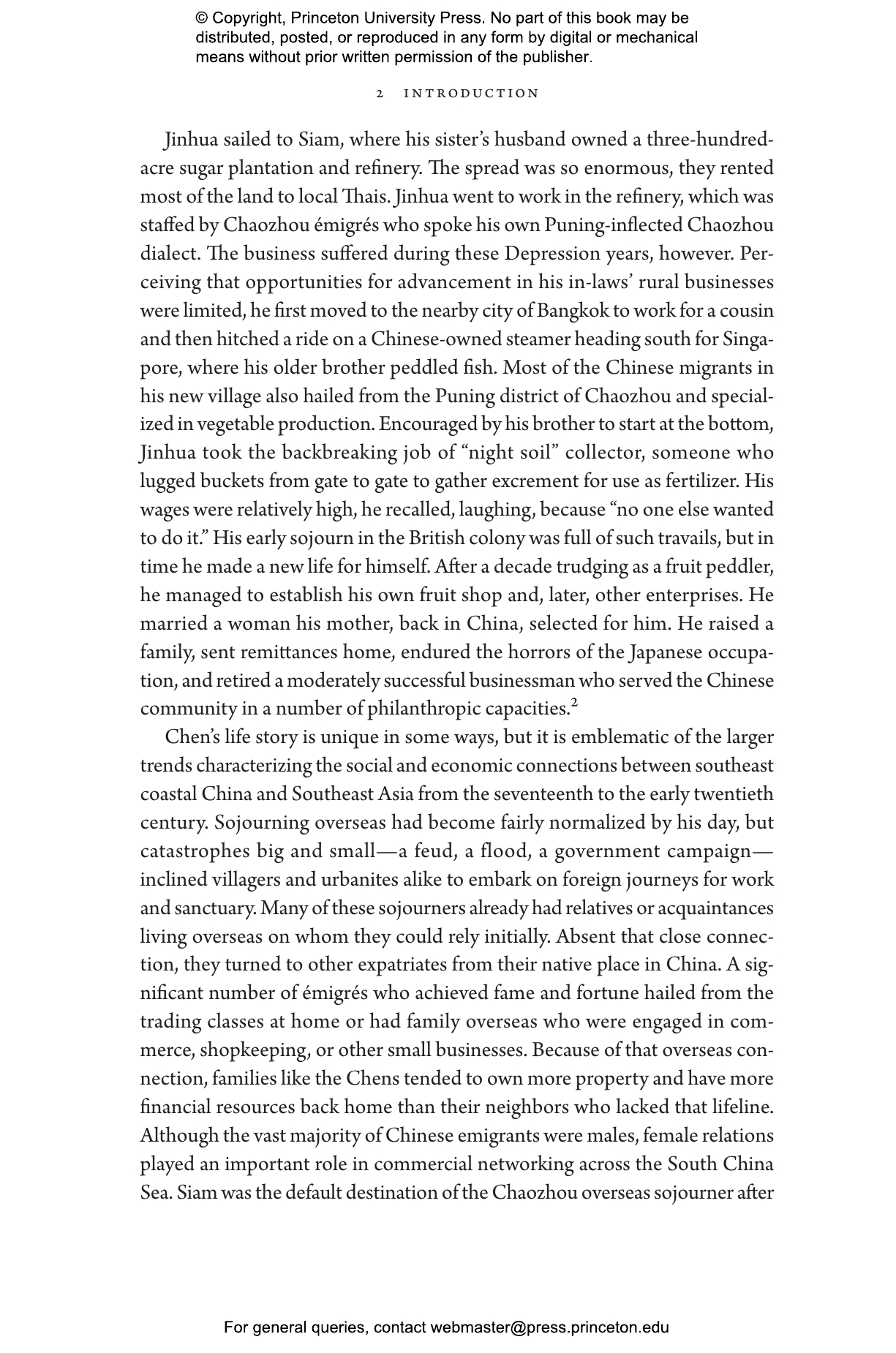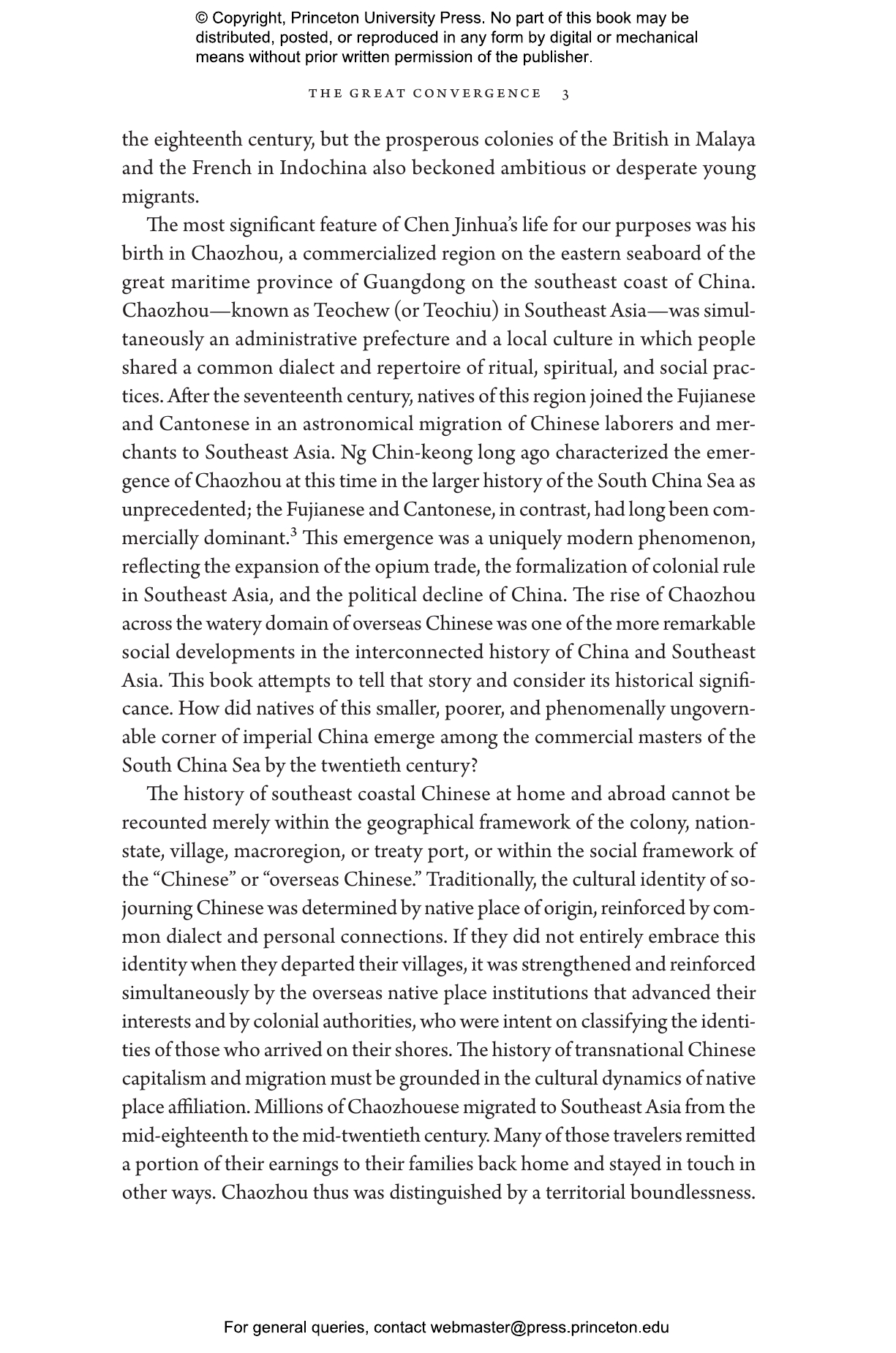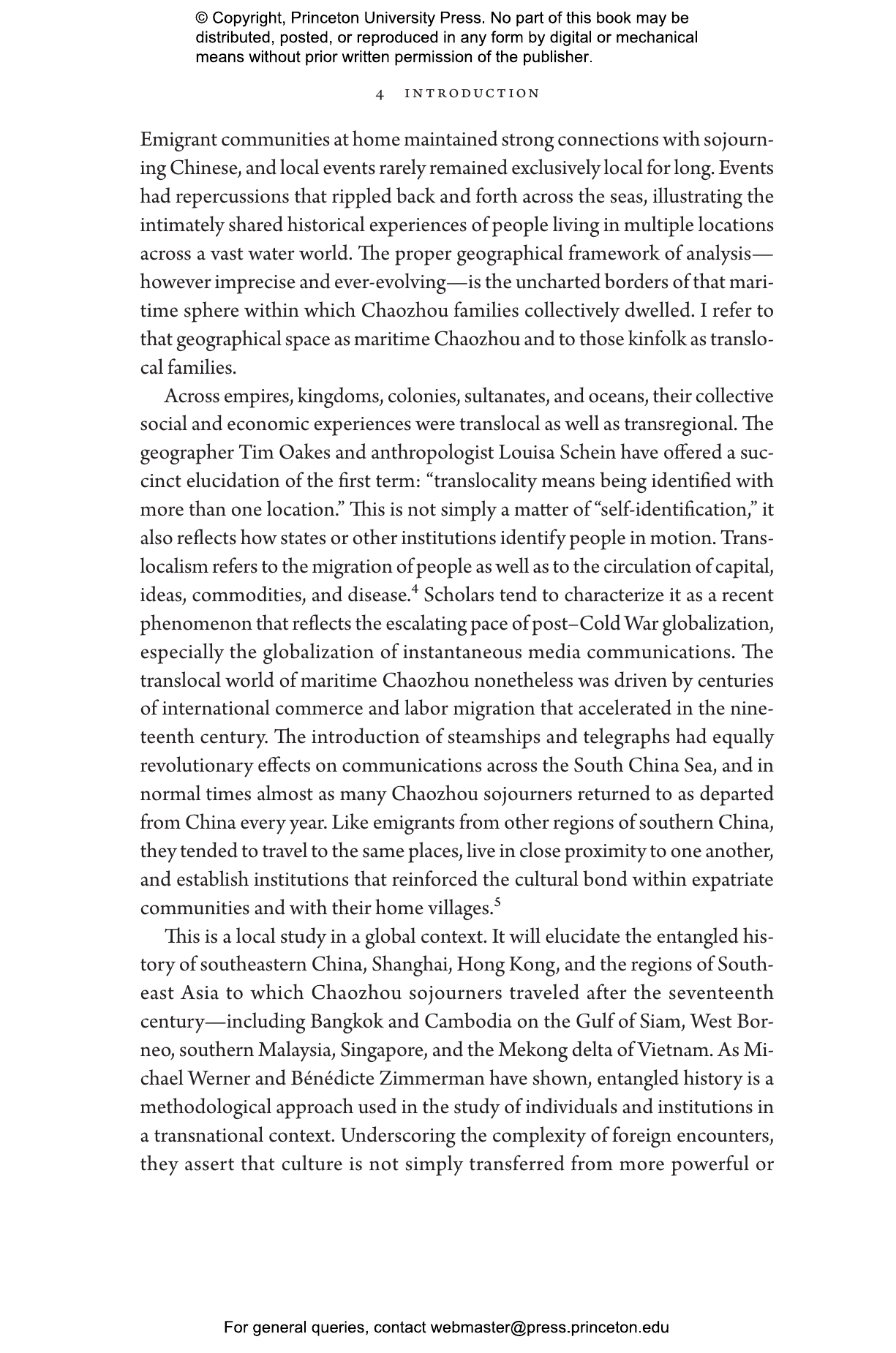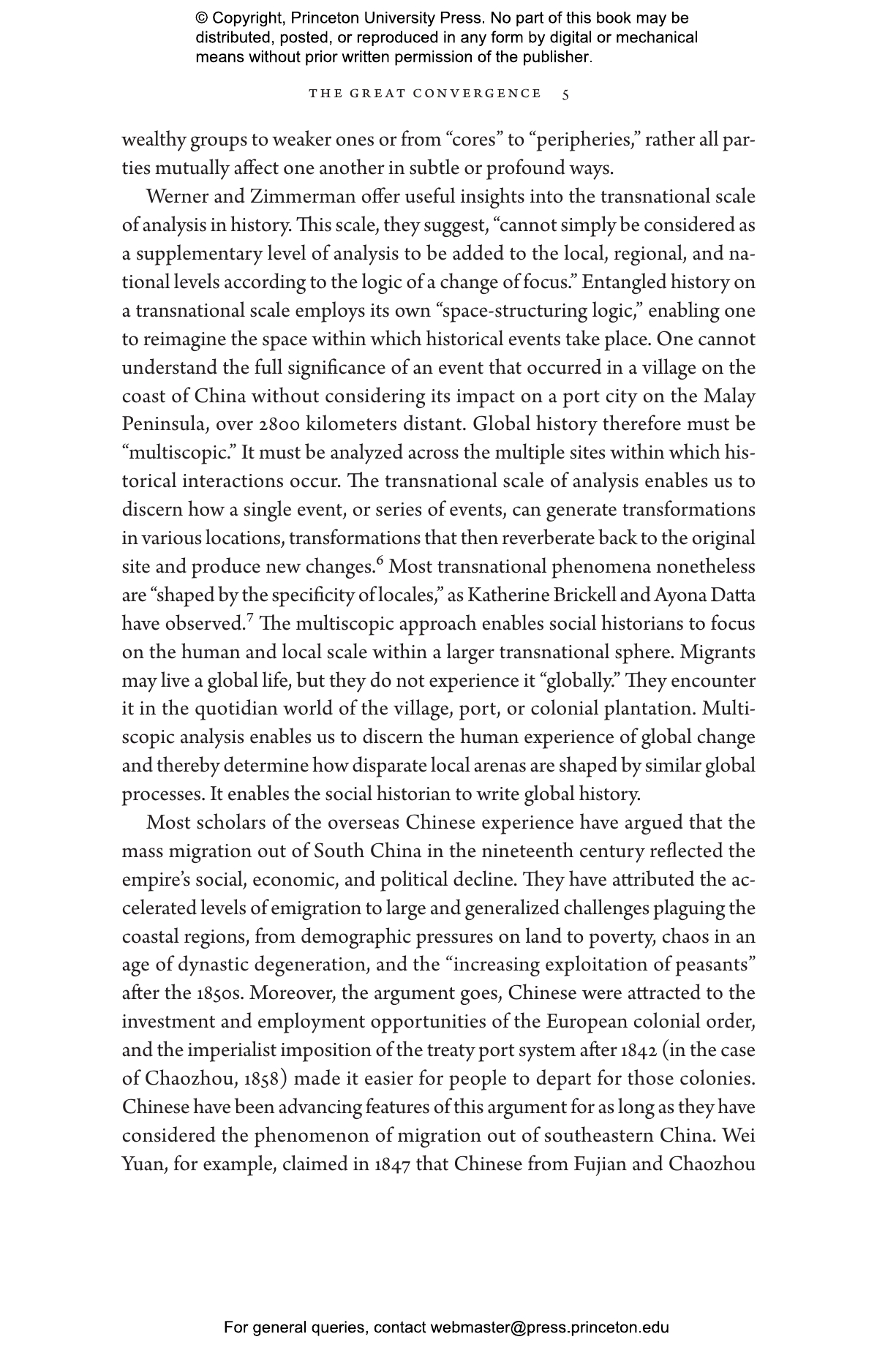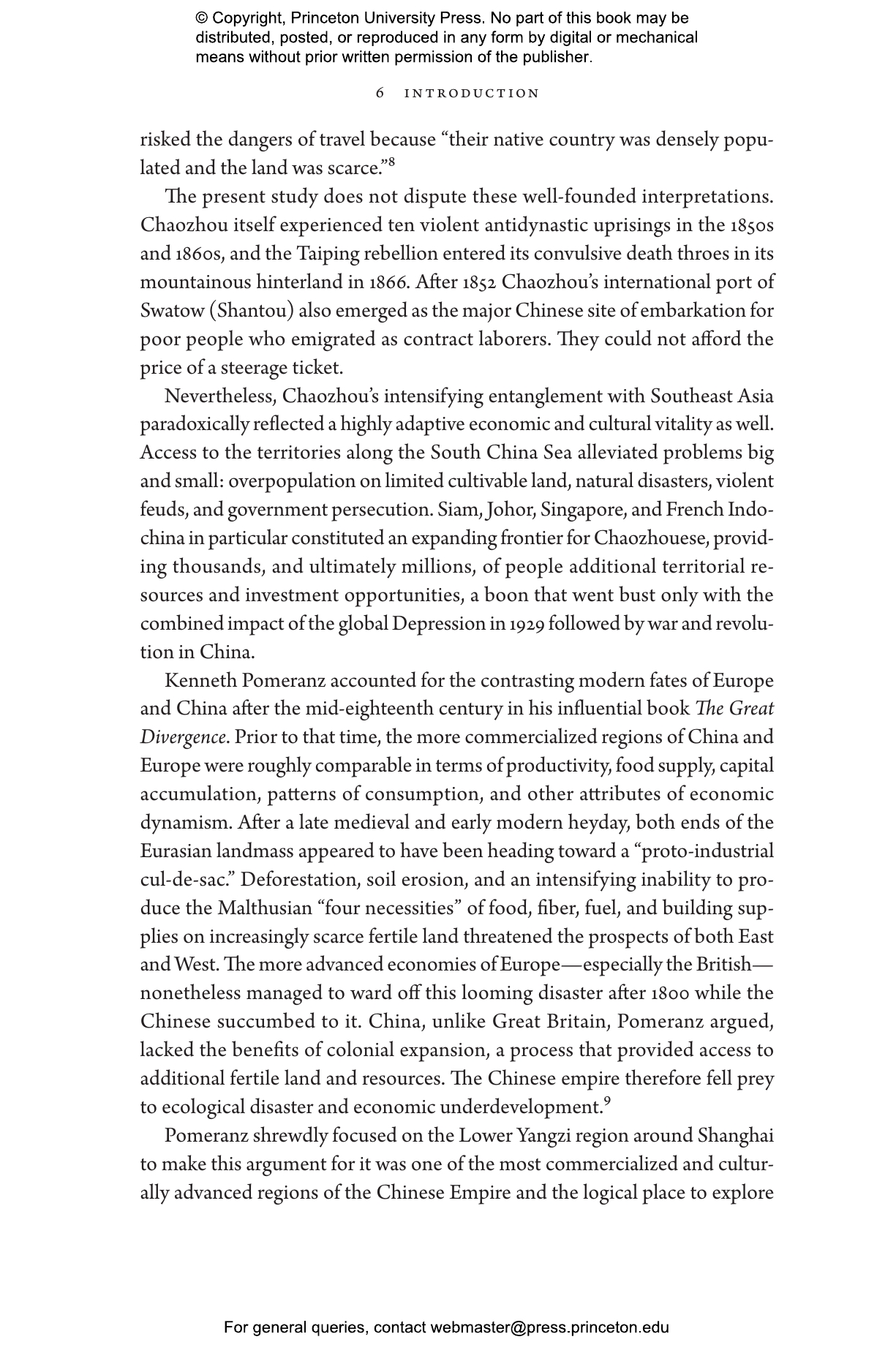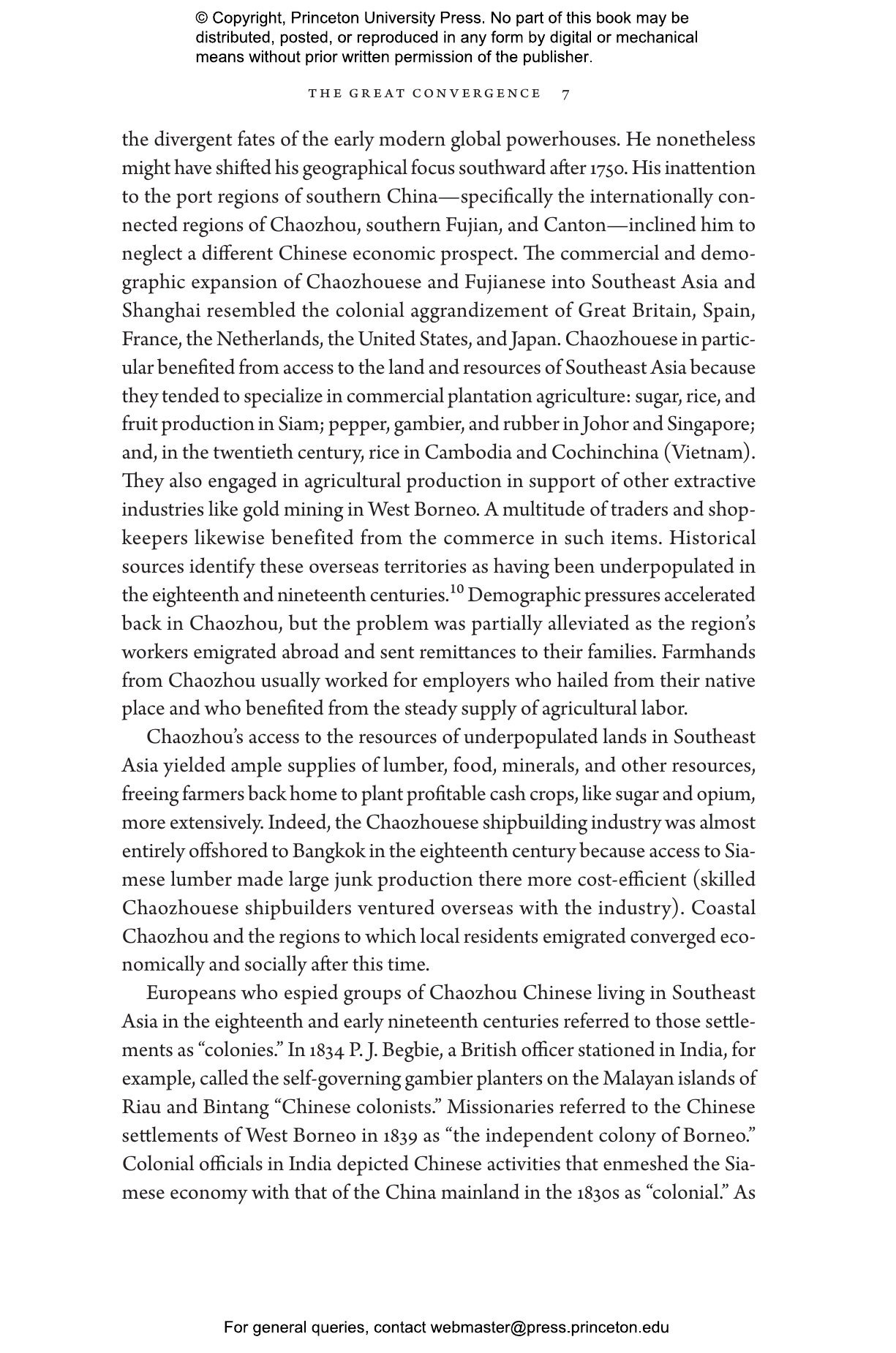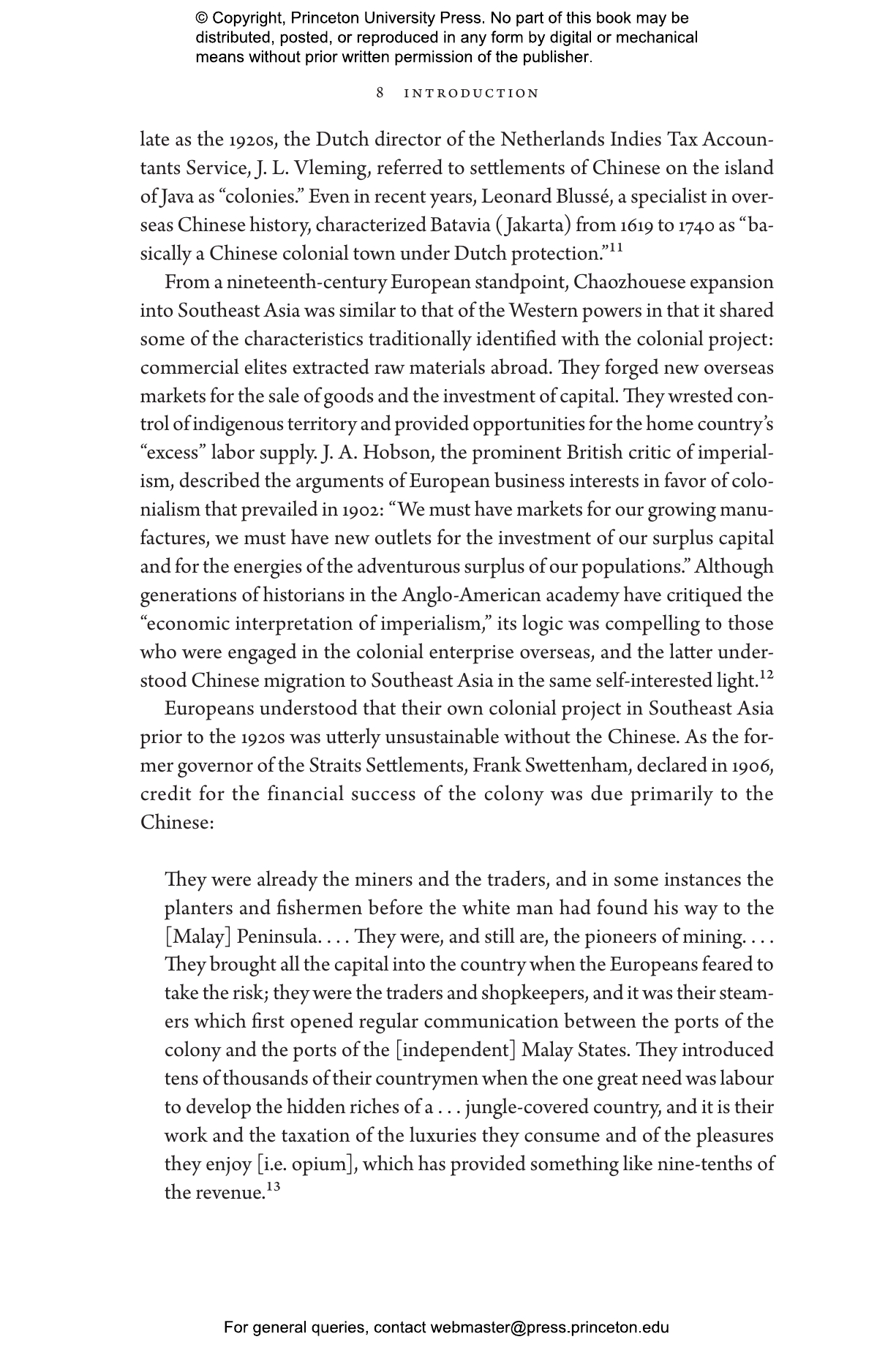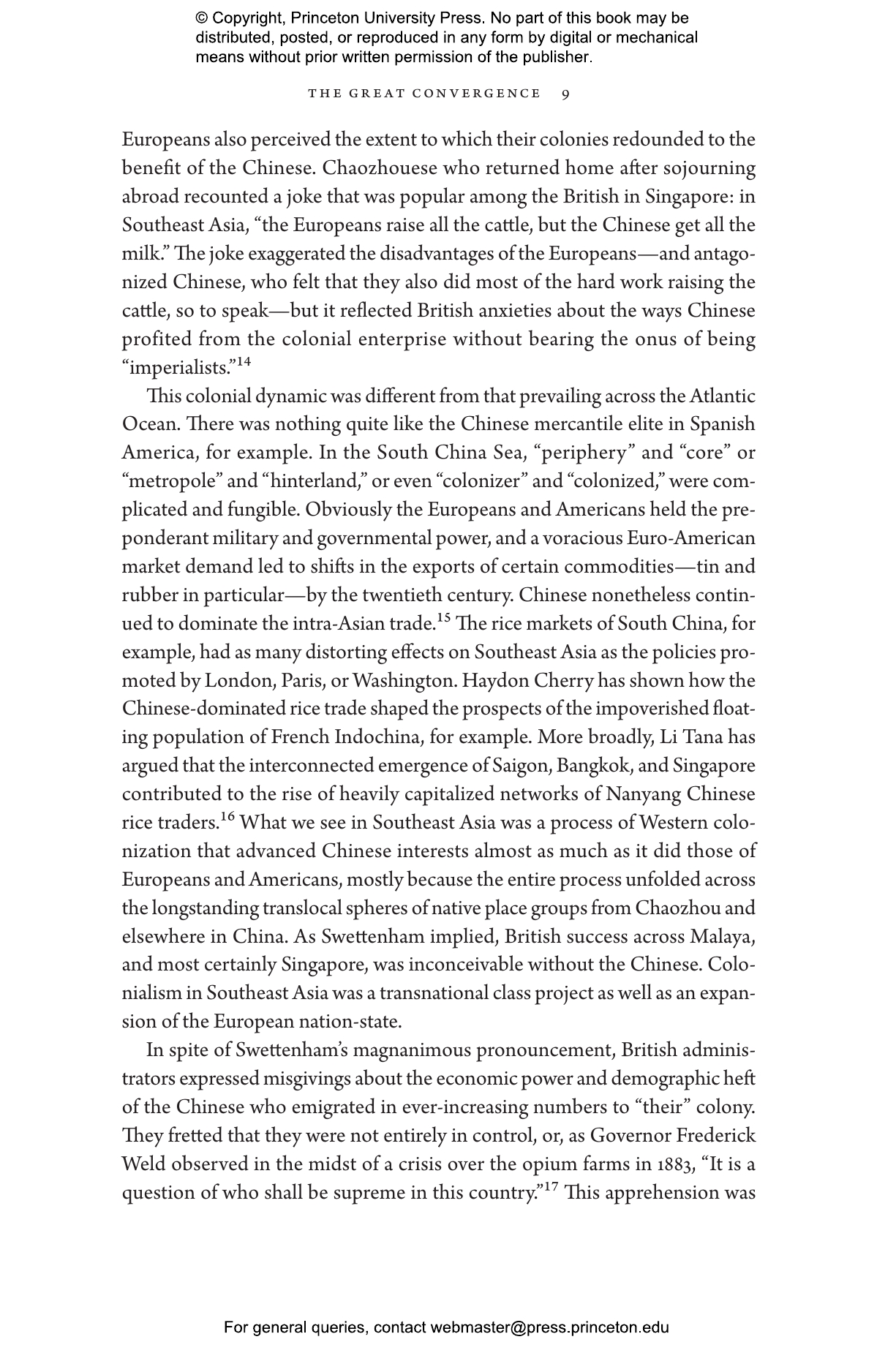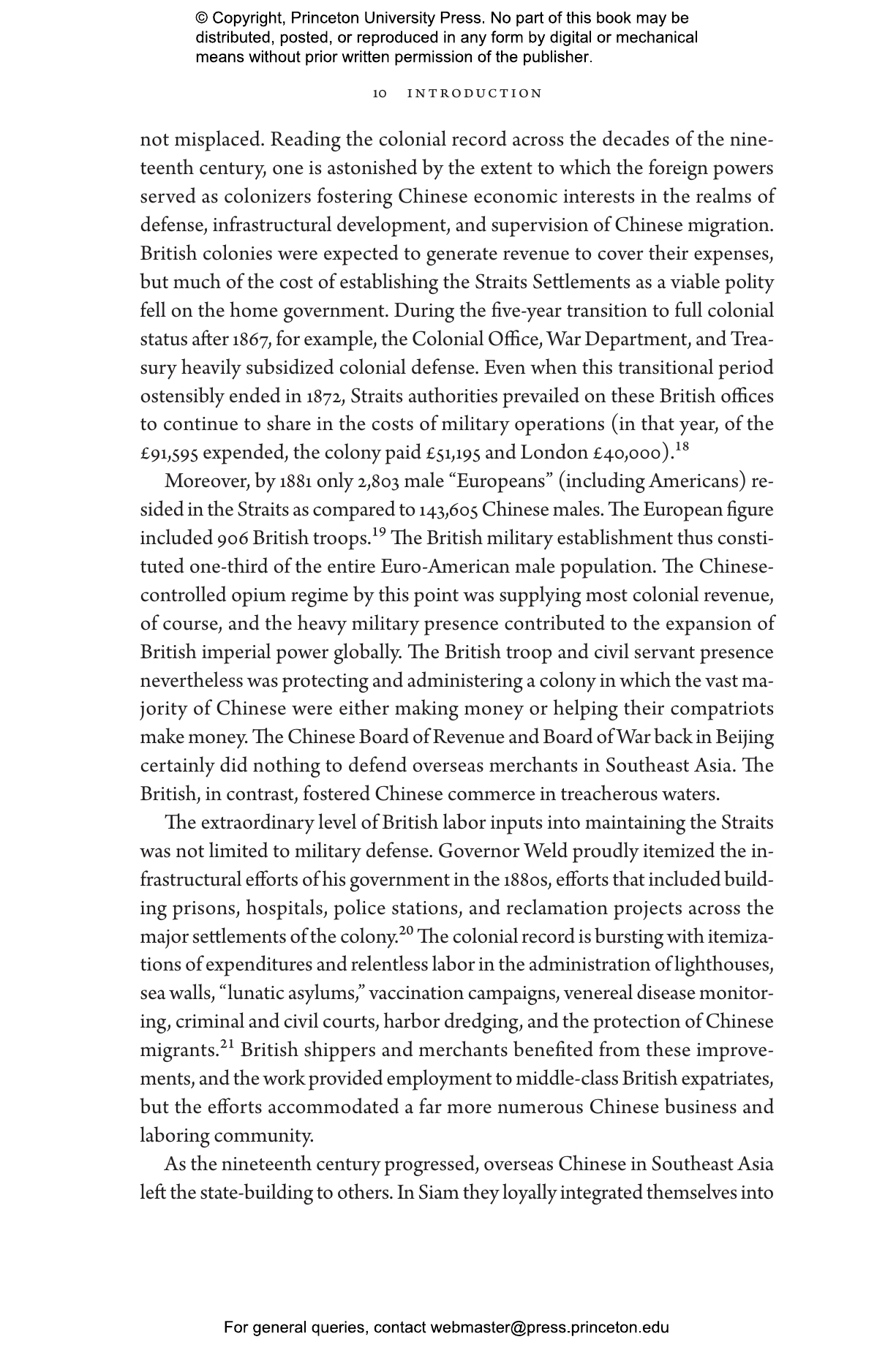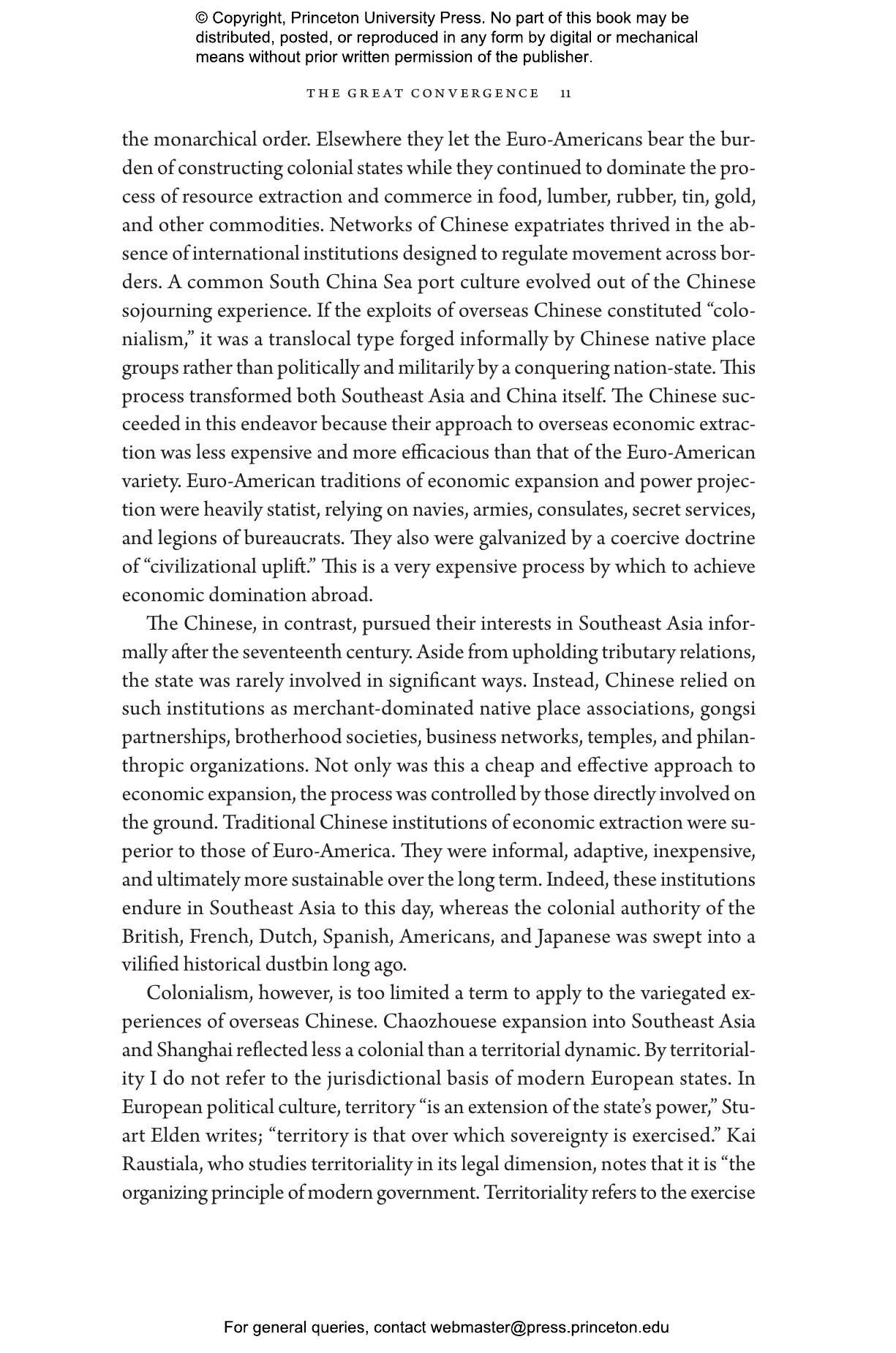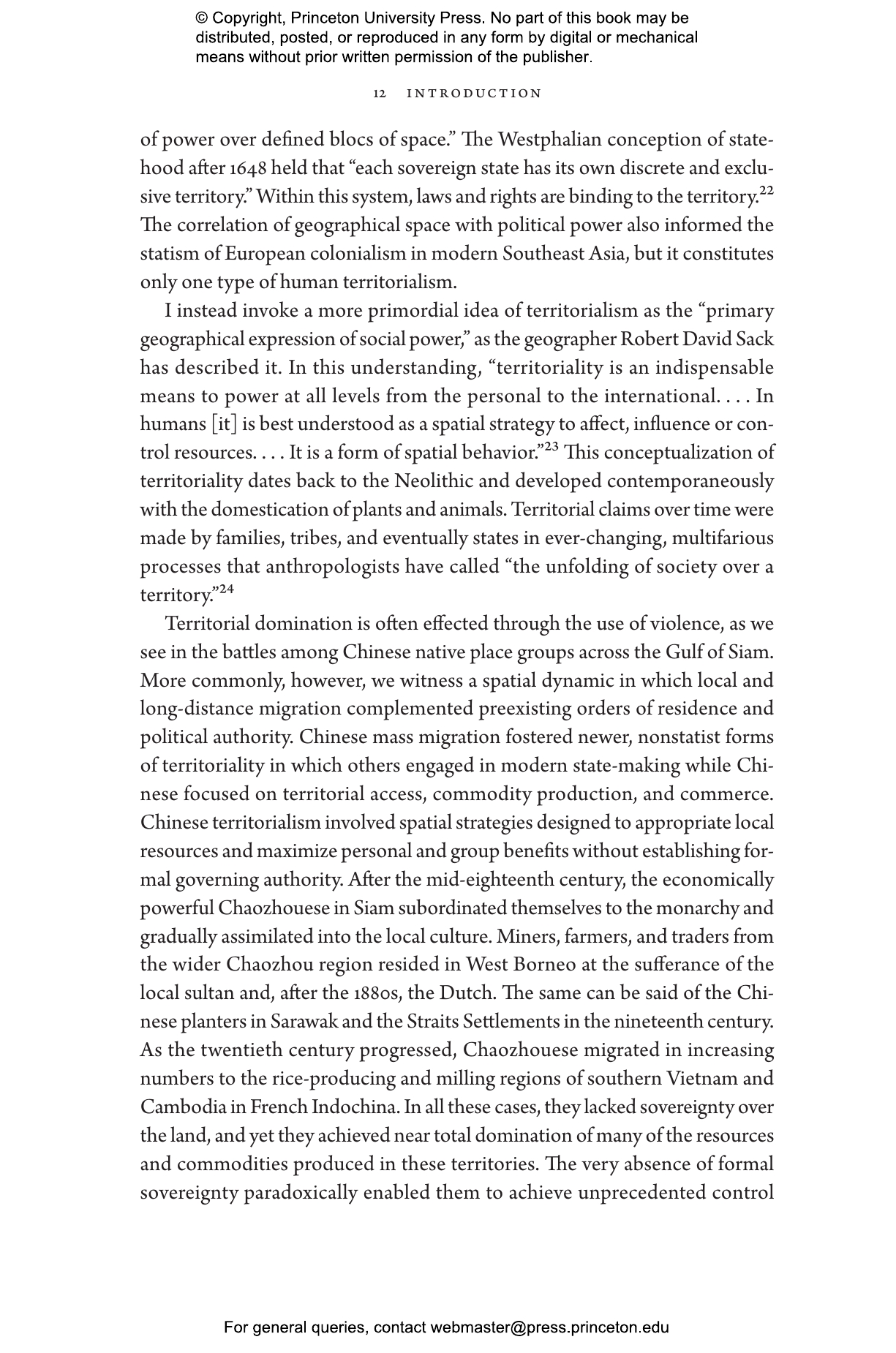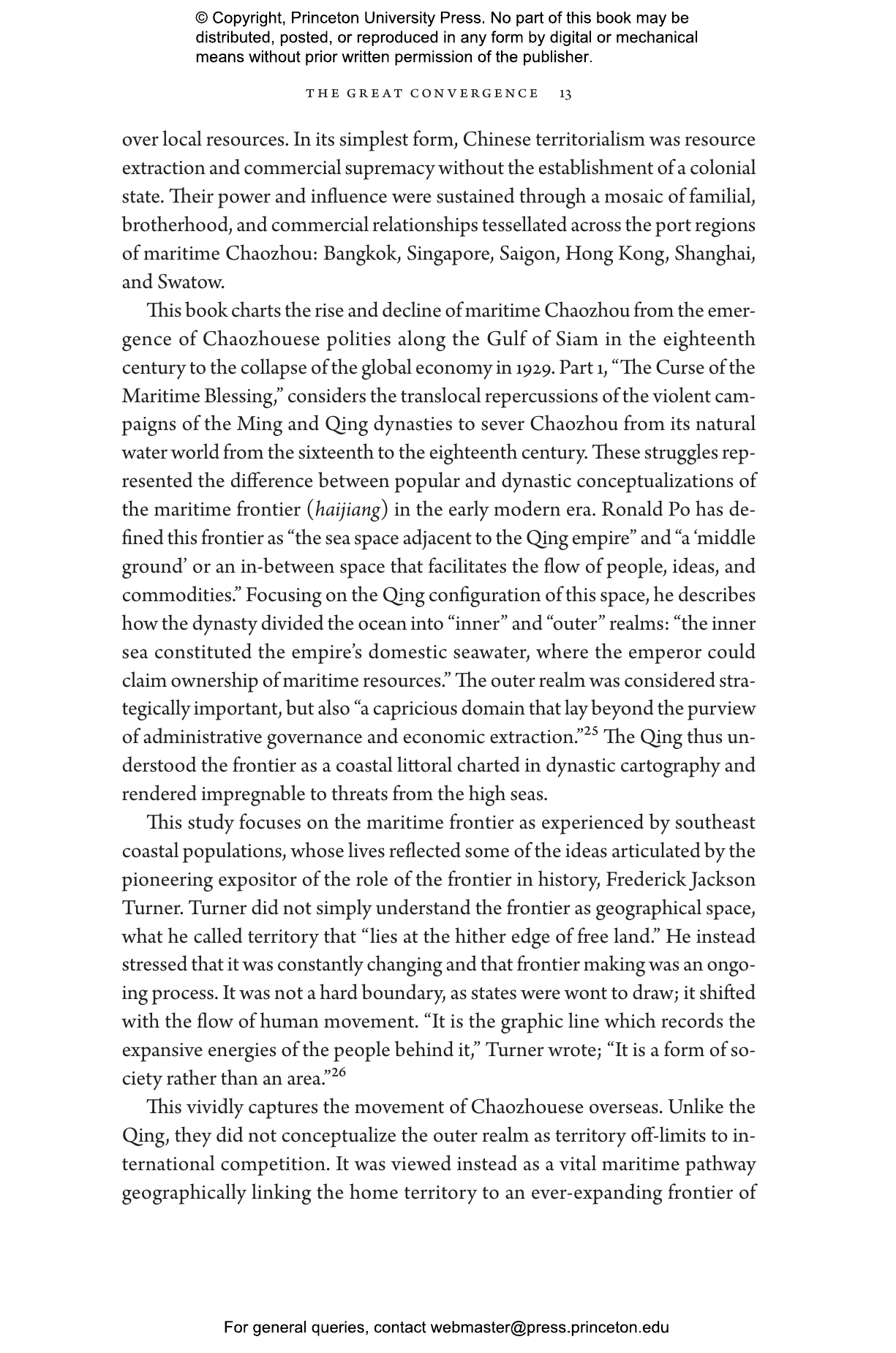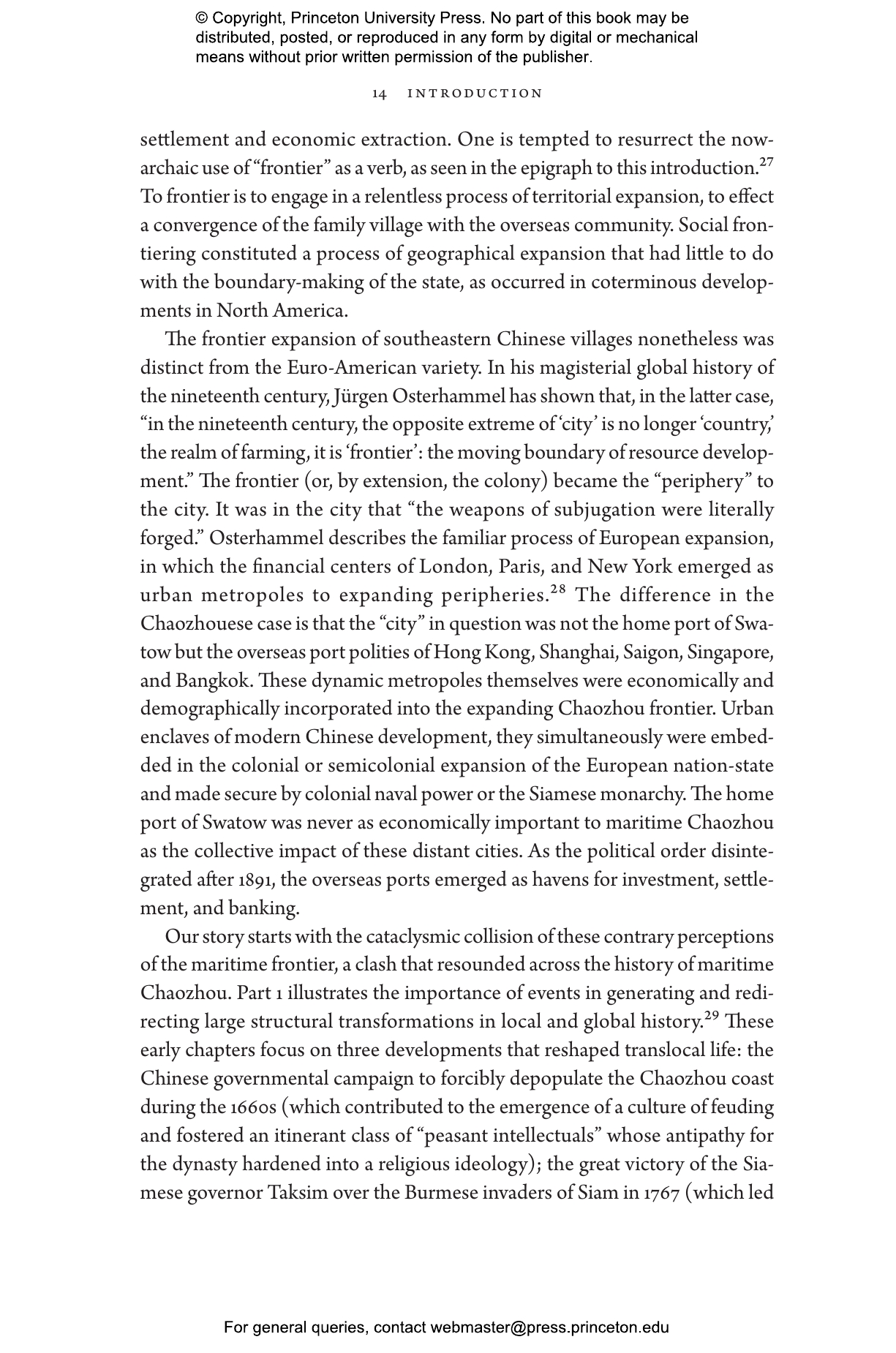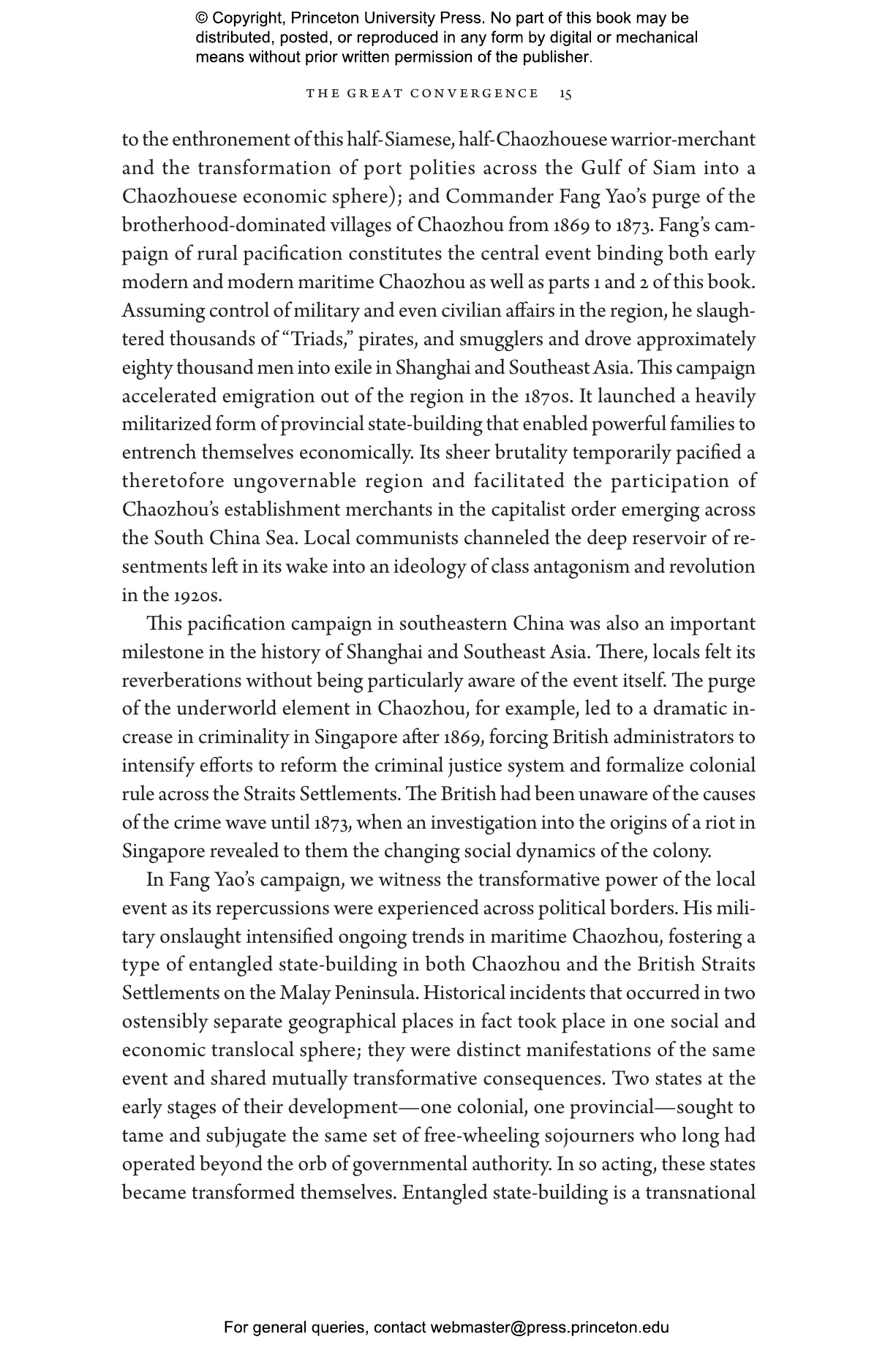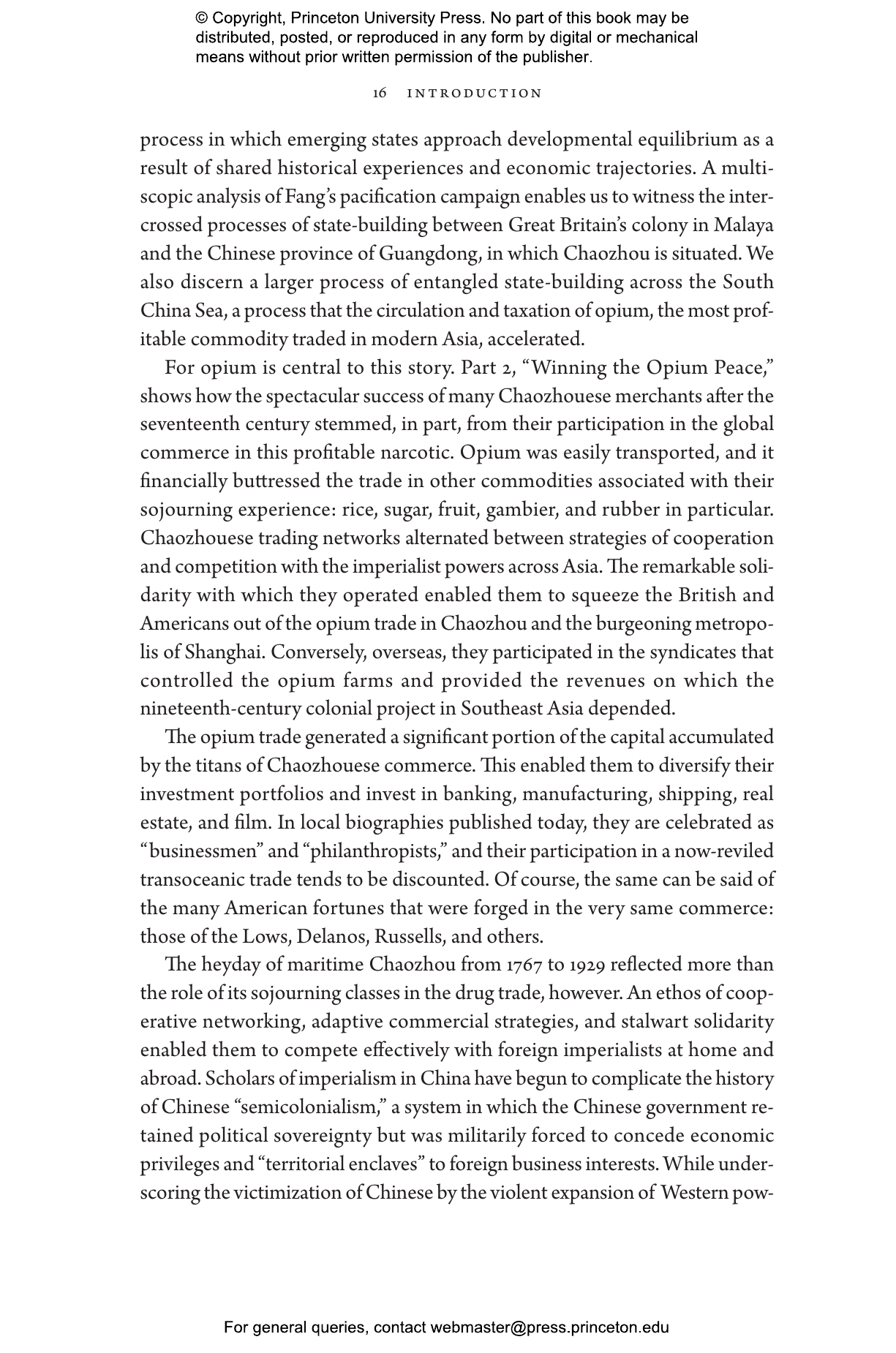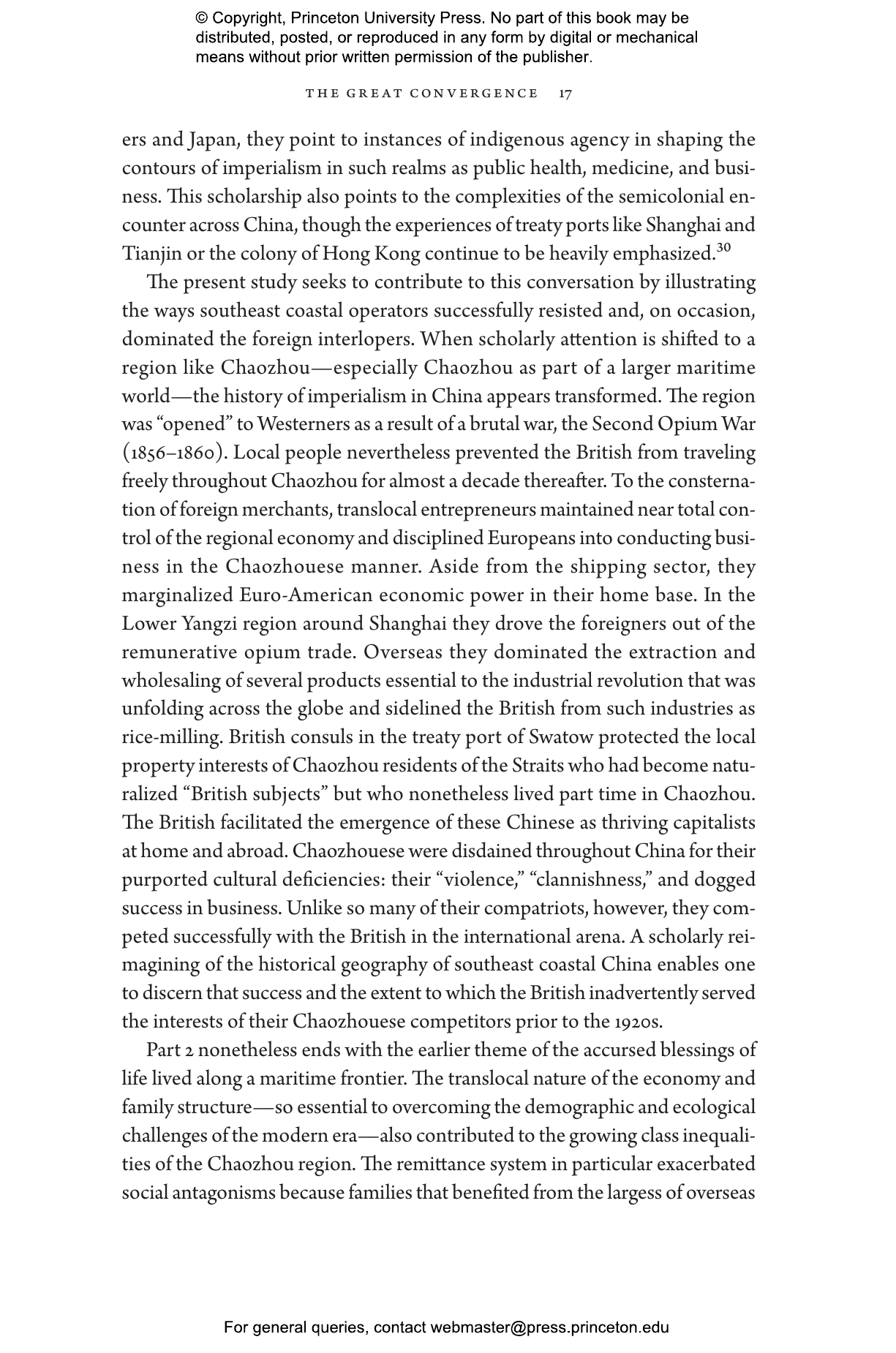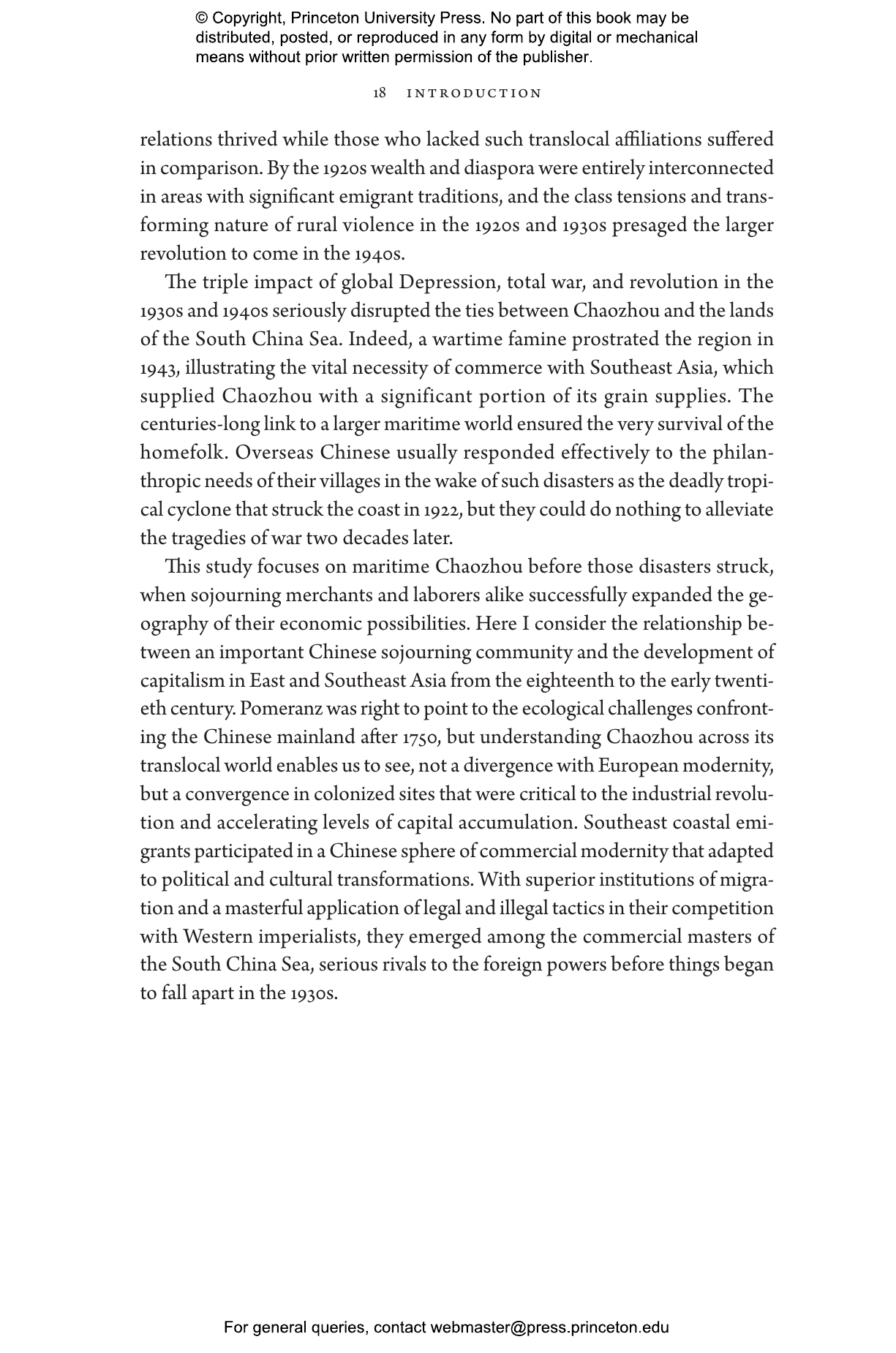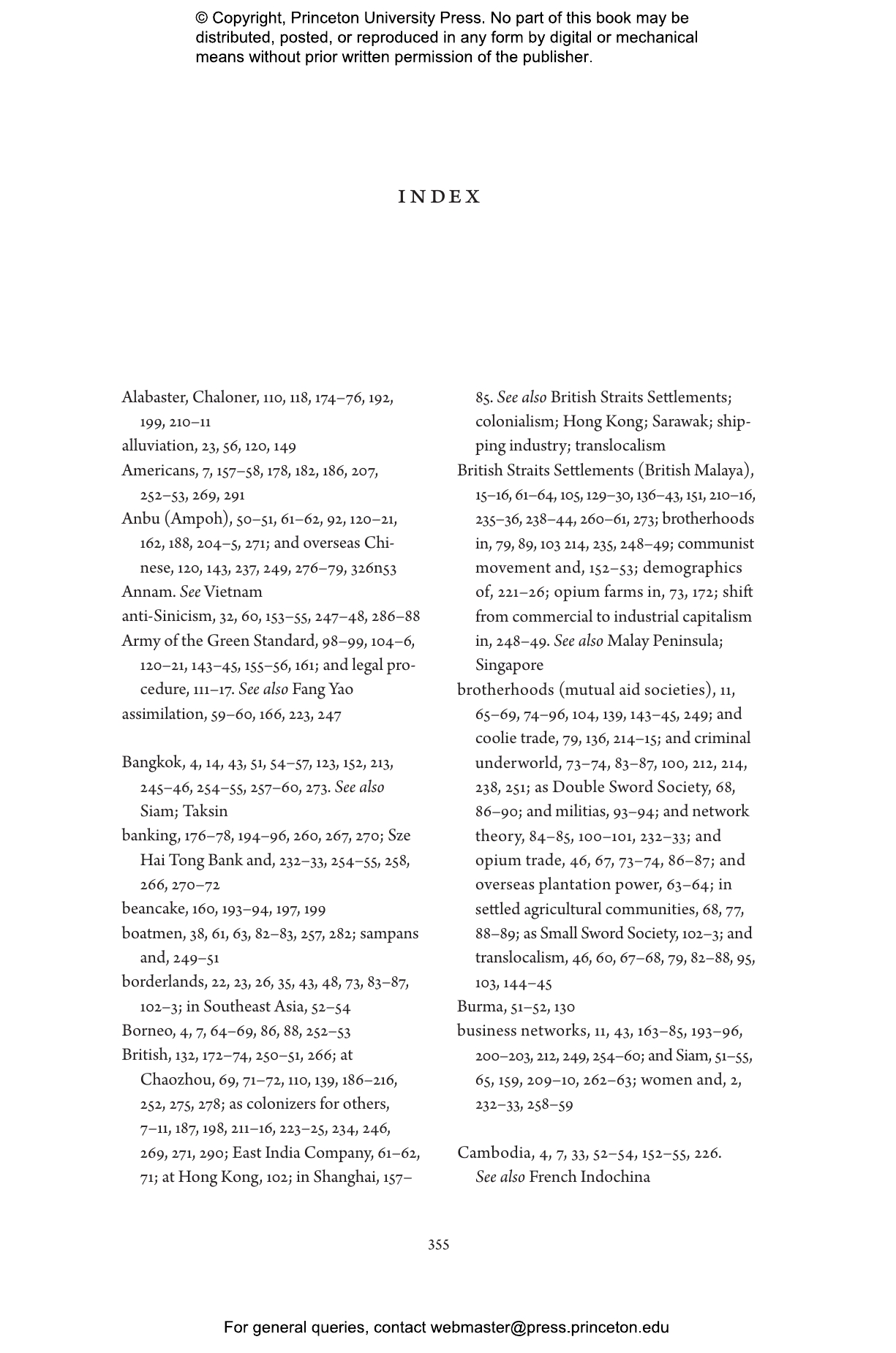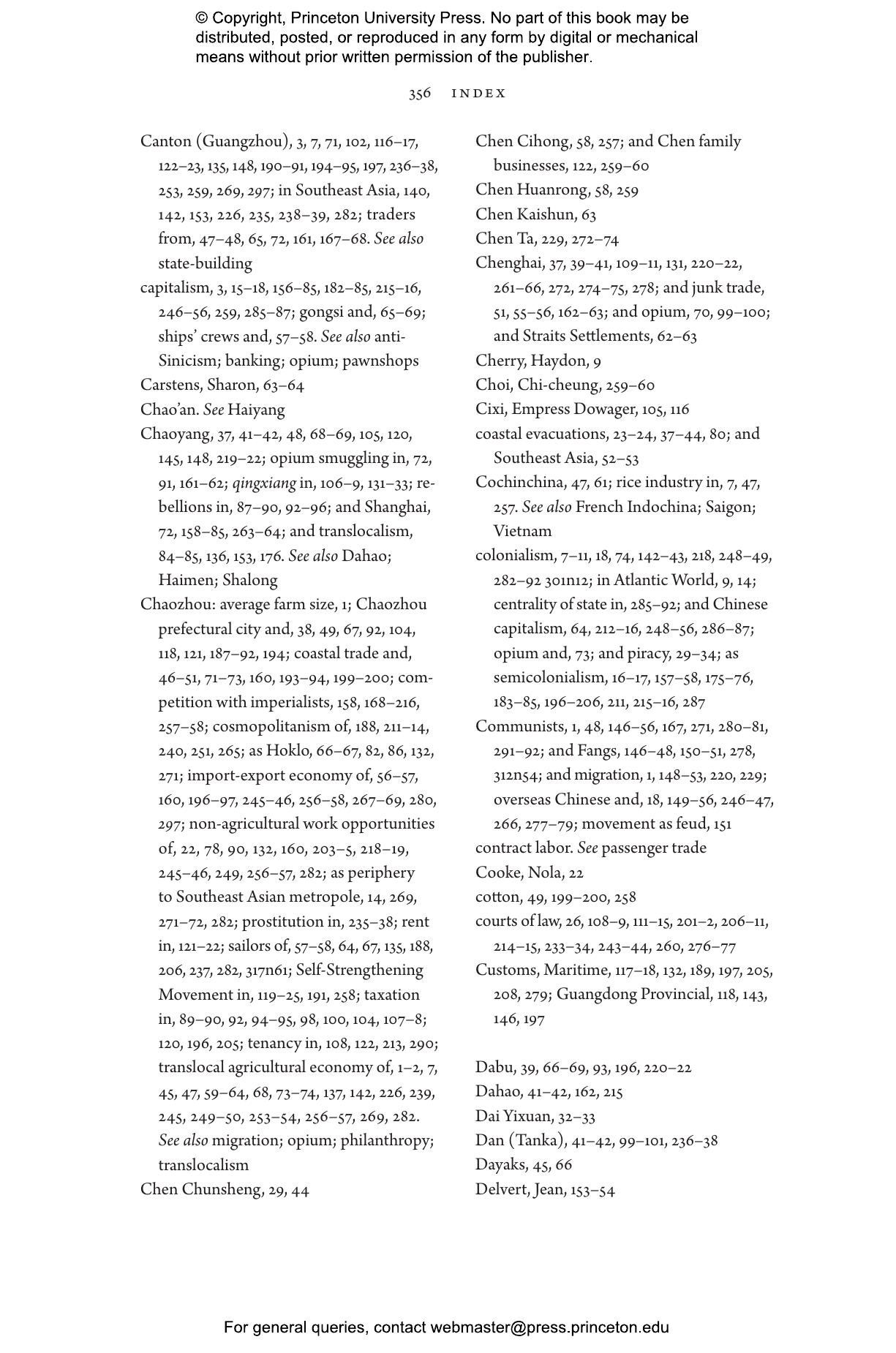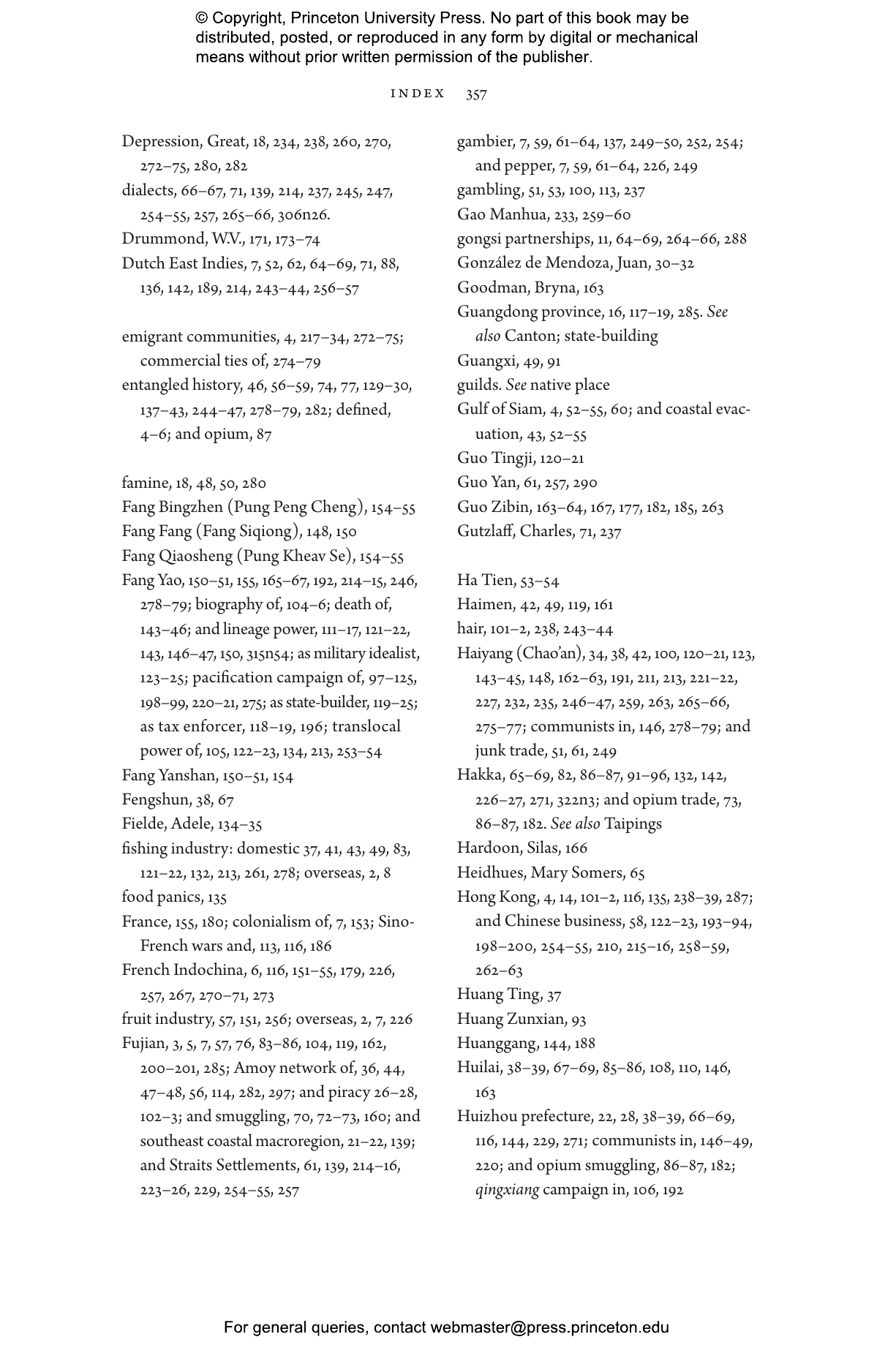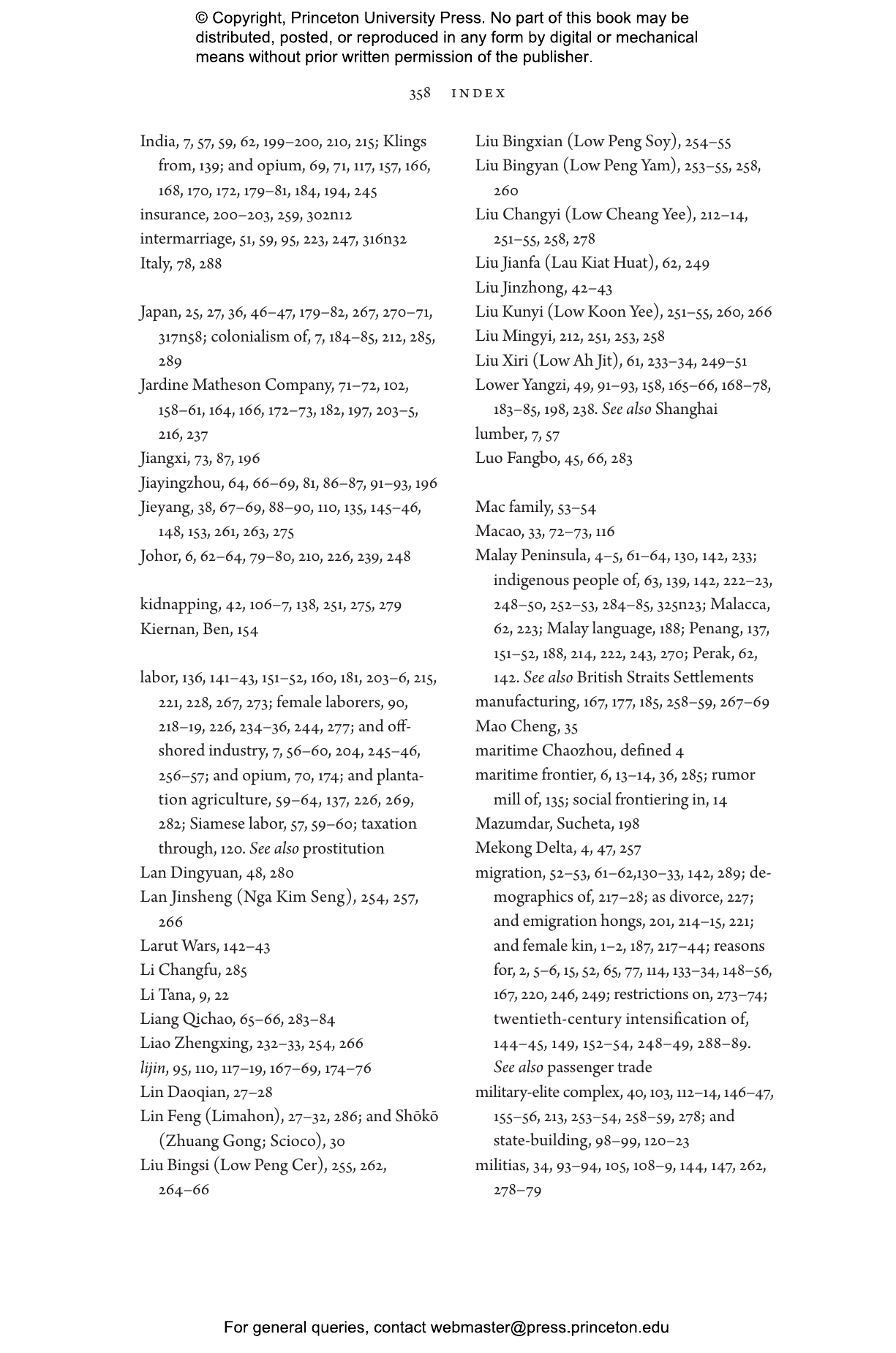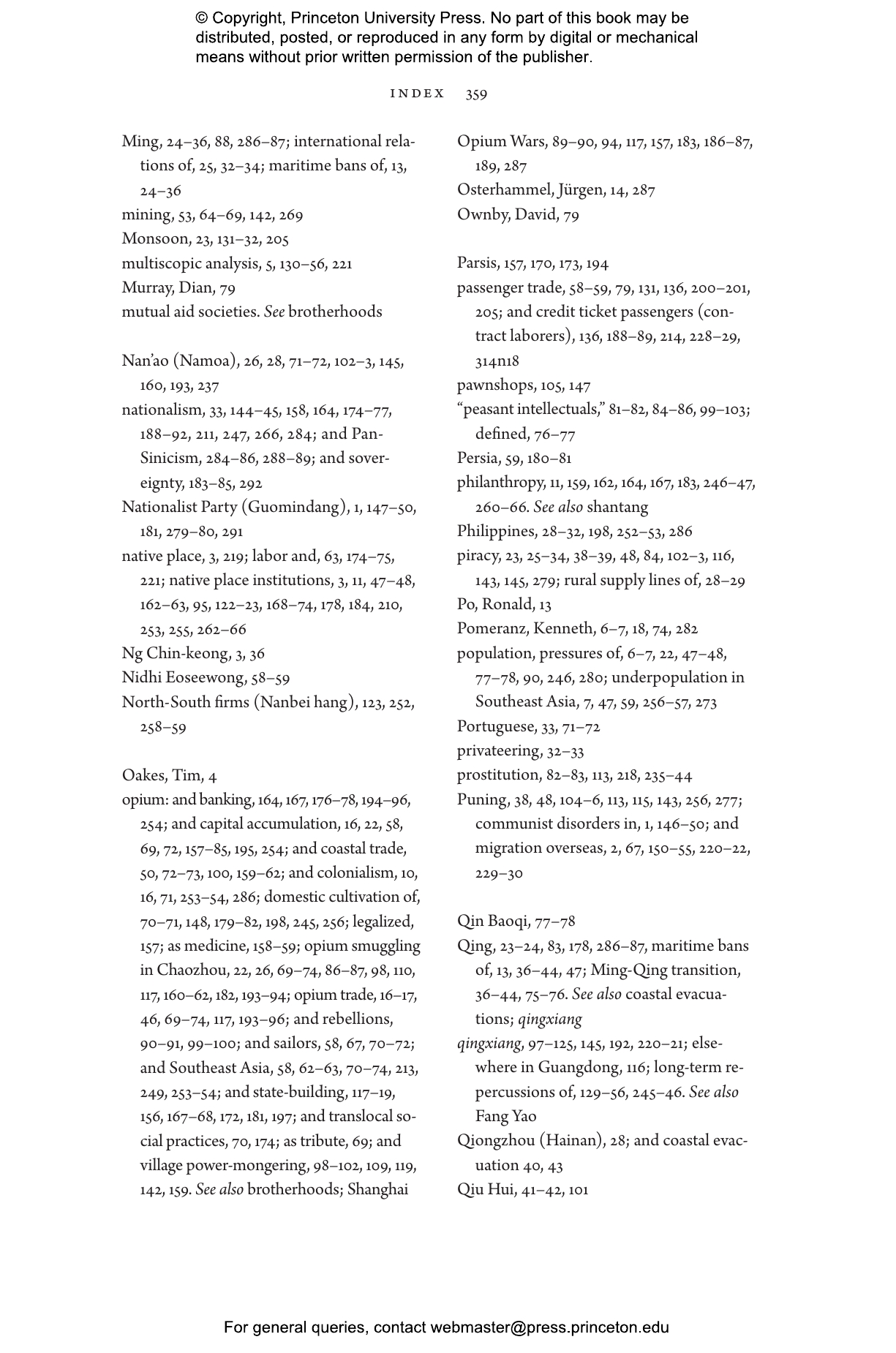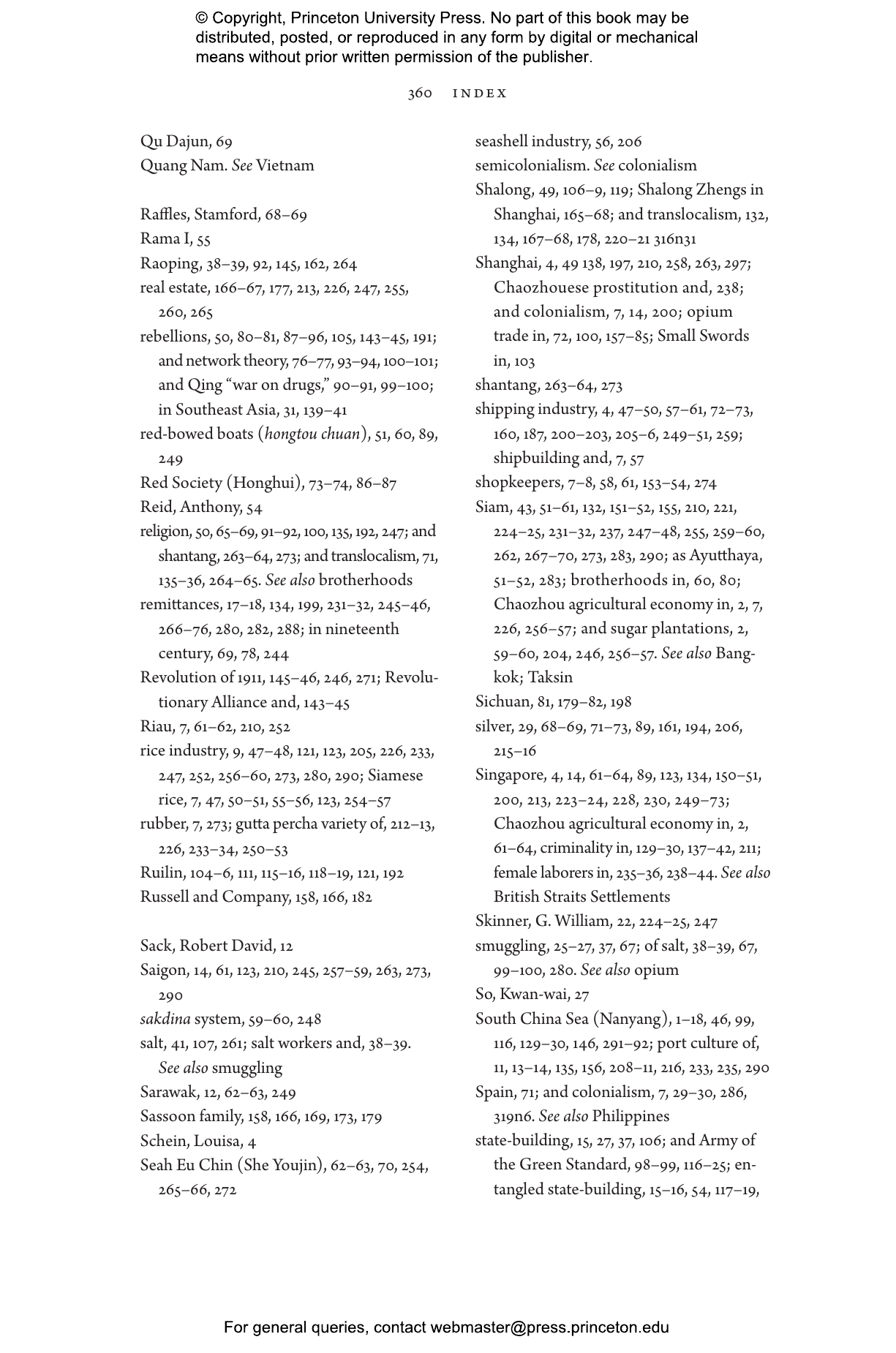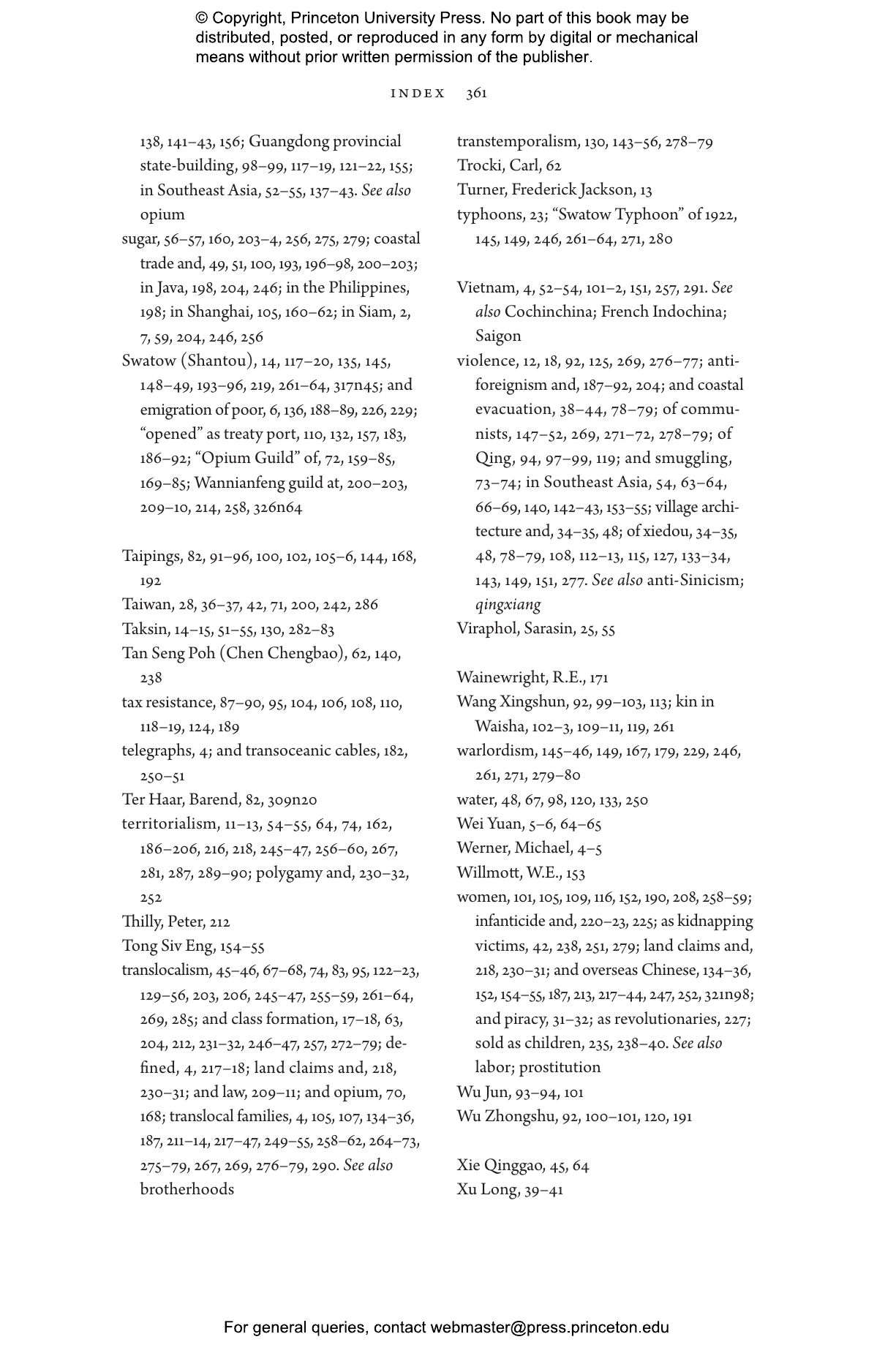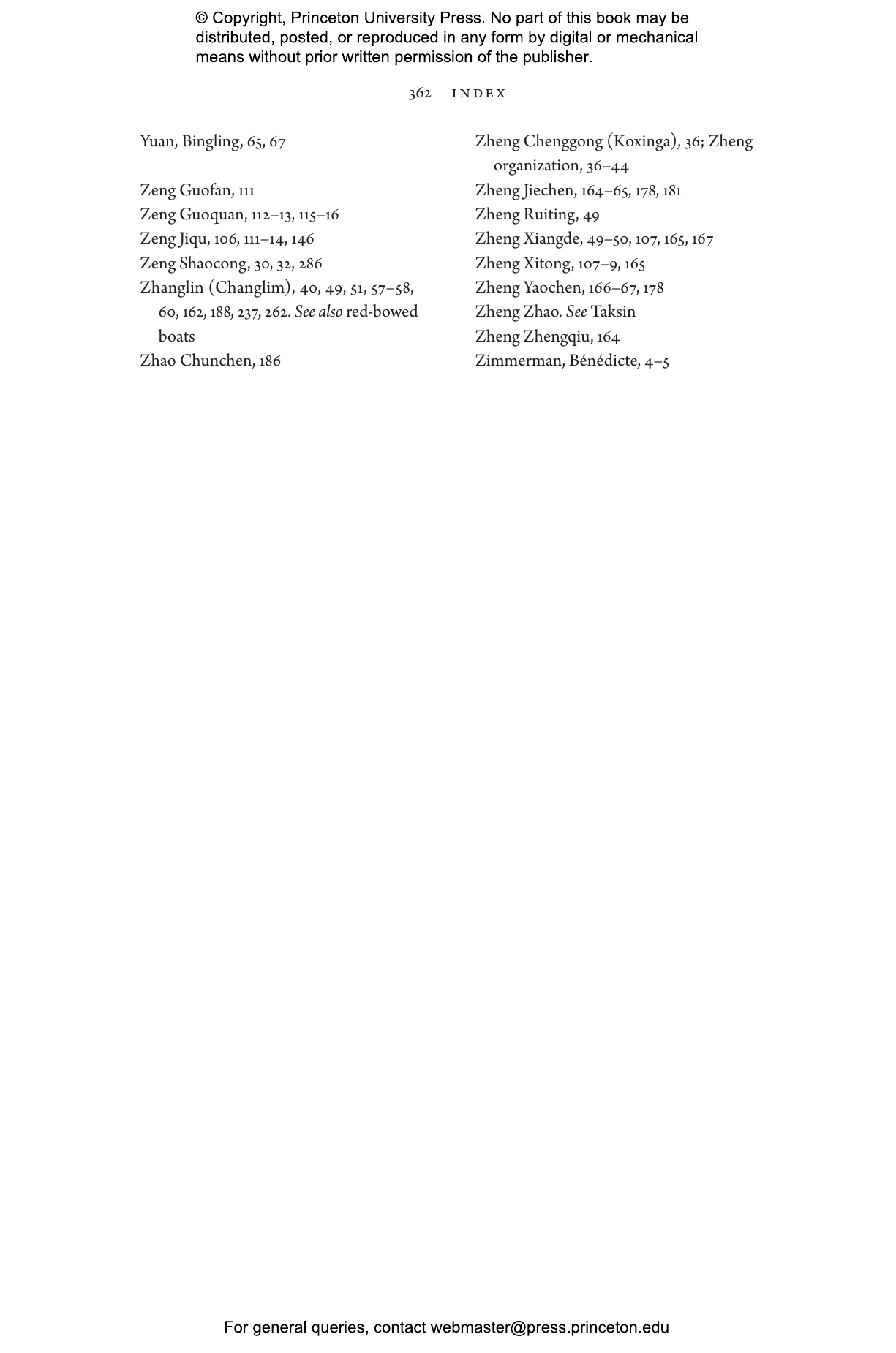China has conventionally been considered a land empire whose lack of maritime and colonial reach contributed to its economic decline after the mid-eighteenth century. Distant Shores challenges this view, showing that the economic expansion of southeastern Chinese rivaled the colonial ambitions of Europeans overseas.
In a story that dawns with the Industrial Revolution and culminates in the Great Depression, Melissa Macauley explains how sojourners from an ungovernable corner of China emerged among the commercial masters of the South China Sea. She focuses on Chaozhou, a region in the great maritime province of Guangdong, whose people shared a repertoire of ritual, cultural, and economic practices. Macauley traces how Chaozhouese at home and abroad reaped many of the benefits of an overseas colonial system without establishing formal governing authority. Their power was sustained instead through a mosaic of familial, fraternal, and commercial relationships spread across the ports of Bangkok, Singapore, Saigon, Hong Kong, Shanghai, and Swatow. The picture that emerges is not one of Chinese divergence from European modernity but rather of a convergence in colonial sites that were critical to modern development and accelerating levels of capital accumulation.
A magisterial work of scholarship, Distant Shores reveals how the transoceanic migration of Chaozhouese laborers and merchants across a far-flung maritime world linked the Chinese homeland to an ever-expanding frontier of settlement and economic extraction.
Awards and Recognition
- Winner of the Bentley Book Prize, World History Association
Melissa Macauley is associate professor of history at Northwestern University. She is the author of Social Power and Legal Culture: Litigation Masters in Late Imperial China.
"[A] game-changer for early modern Chinese maritime history. . . . Distant Shores is an incredibly important book that will influence historical scholarship on the Qing Empire, Southeast Asia, and the global economy for years to come. The fact that it is packed with so many colourful characters and poignant vignettes is just icing on the cake."—Ryan Holroyd, Pacific Affairs
"[A] deeply researched study. . . . Distant Shores succeeds in its objective to further nuance the conventional narrative of China’s decline throughout the long 19th century by shifting the gaze to the southeastern littoral."—Yorim Spoelder, Asian Review of Books
"[An] excellent study. . . . This compelling work not only provides a fresh look at the rationale behind the first Opium War, but also importantly deconstructs the rhetoric of the widely accepted fundamental divergence of Europe and China supposed to have developed starting in the eighteenth century."—Bart Dessein, Journal of the European Association for Chinese Studies
"[A] delightful and inspiring book."—Ronald C. Po, Journal of Asian Studies
"Macauley illuminates the entangled histories of the seafaring Chaozhouese and mainland Southeast Asia with analytical clarity and lavish detail. Distant Shores demonstrates why we cannot fully grasp the regional and the global without the perspective of the local."—Prasenjit Duara, Duke University
"This important and compelling book dramatically revises the narratives of Chinese decline during the height of European imperialism. Macauley shows how maritime Chaozhou overcame competition from putatively more powerful European competitors, in the process gaining access to vital land and resources that sustained the Chaozhou homeland."—Steven B. Miles, Washington University in St. Louis
"This riveting drama of the intrepid migrants of the Chaozhou diaspora includes violence, piracy, opium, and the making of great fortunes. It is also a brilliant transnational economic and social history of the disasters and triumphs of these shock troops of Chinese colonial expansion, who still undergird Chinese dominance in Southeast Asia. Macauley tells her story with verve, color, and deep insight. Fascinating and profound!"—Peter Perdue, Yale University
"Macauley has written a richly detailed and theoretically important study of the Chaozhou Chinese. She expertly traces the threads of the overseas experience and rejoins them with historical events on Chinese soil to create a much-needed analysis of the evolution of the economy and power structures of this important late imperial community."—Madeleine Zelin, Columbia University
